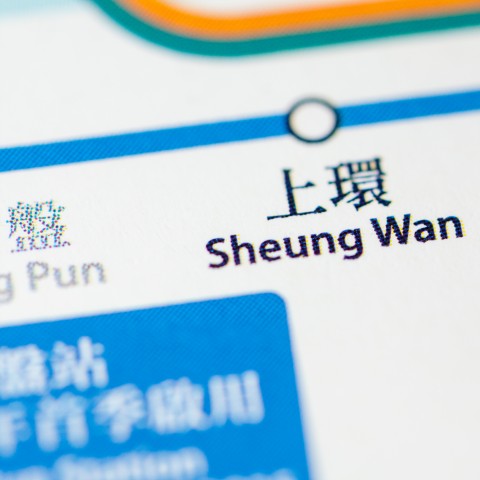
Learning a new language isn’t easy; it takes time and effort. Many Korean learners are too afraid to start speaking Korean because they’re scared of making mistakes. But it’s important to understand that you can’t improve your Korean if you don’t keep trying. It’s okay to make mistakes—it’s how you become better at Korean!
Today, we’ll introduce the five most common mistakes Korean learners make. We’ll focus on Korean language mistakes in grammar, pronunciation, and vocabulary. In addition, we’ll give you information on how you can improve your Korean and make fewer mistakes.
 Table of Contents
Table of Contents
- Korean Pronunciation Mistakes – 합니다 (hamnida) and 같이 (gachi)
- Vocabulary Word Mistakes – 이 (i) / 가 (ga) and 은 (eun) /는 (neun)
- Homophones- 낳다 (nata) vs. 낫다 (natda) vs. 낮다 (natda)
- Korean Grammar Mistakes – Verb Stem + (는)구나 ([neun]guna)
- Other Mistakes – 생일 (saengil) vs. 생신 (saengsin)
- How KoreanClass101 Can Help You with Korean
1. Korean Pronunciation Mistakes – 합니다 (hamnida) and 같이 (gachi)
The two most common Korean mistakes regarding pronunciation are to mispronounce the words 합니다 (hamnida) and 같이 (gachi). Keep reading to learn how to avoid making these mistakes!
합니다 (hamnida)
Many Korean learners pronounce 합니다 (hamnida) as “hap-ni-da.” However, when you listen closely to native speakers, it’s pronounced “ham-ni-da.” It may sound strange to you because it sounds like 함니다 (hamnida), though this is incorrect.
Just remember that this is a special case where you need to memorize the correct pronunciation. And pronouncing it correctly will make your life a lot easier. Why? Try saying “hap-ni-da” and “ham-ni-da.” Did you notice that “hamnida” is a lot easier and faster to say?
같이 (gachi)
Now let’s look at the romanization of 같이 (gachi). Do you know what this word means? That’s right, it means “together.”
While reading each of the following words and trying to pronounce them, it will sound like “gat-ee.” However, the correct way to pronounce this word is “ga-chi.”
Let’s practice its pronunciation with these two sentences.
- 그 부분은 다뤘다고 생각합니다.
Geu bubuneun darwotdago saenggakamnida.
“I think we have covered that.”
- 다시 뵙기를 기대합니다.
Dasi boepgireul gidaehamnida.
“I look forward to seeing you again.”

2. Vocabulary Word Mistakes – 이 (i) / 가 (ga) and 은 (eun) /는 (neun)
Korean learners struggle to understand Korean particles because many of these particles do not translate directly to English. Let’s take a look at the subject markers 이 (i) and 가 (ga) and the topic markers 은 (eun) and 는 (neun).
If you want to know when you should use a subject marker versus a topic marker in a sentence, think of the topic markers (eun/neun) as meaning “as far” or “when it comes to.” This will help you construct Korean sentences.
If the sentence makes sense in your head when you plug in “as far” or “when it comes to,” then use the topic marker. If not, then use the subject marker.
Examples:
- 겨울에는 딸기가 최고지.
Gyeoureneun ttalgiga choegoji.
“When it comes to winter, strawberries are the best.”
- 저는…
jeoneun…
“as for me…”
Here are a couple of great resources on KoreanClass101.com to help you better understand how to use topic marking particles:
- Learn how to use the topic marking particles 는 (neun) and 은 (eun).
- How Do I Use the Topic Marking Particles 은 (eun) and 는 (neun)?
3. Homophones- 낳다 (nata) vs. 낫다 (natda) vs. 낮다 (natda)
Other common mistakes in Korean have to do with using the wrong word because it sounds similar to another one. These three words sound very similar, and a lot of Korean learners struggle to choose the right word. In fact, even native Korean speakers struggle to differentiate between 낳다 (nata) and 낫다 (natda). So let’s take a look at each word and learn when to use them.
낳다 (nata) vs. 낫다 (natda) vs. 낮다 (natda)
| Korean words | Romanization | Meaning |
| 낳다 | nata | “To give birth” |
| 낫다 | natda | “To recover from something” |
| 낮다 | natda | “To be low” |
Most people are able to differentiate between 낫다 (natda) and 낮다 (natda) without much of a problem. However, a lot of people—even native speakers—get confused when it comes to 낳다 (nata) and 낫다 (natda).
The best way to remember is this: When you want to say “someone gave birth,” then the 받침 (badchim) has to be the last 받침 (badchim) in the order, which is ㅎ.
Examples:
- 다리의 상처가 아직 낫지 않았어.
Dariui sangcheoga ajik natji anasseo.
“The wound on my leg is not healed yet.”
- 수잔은 어젯밤에 딸을 낳았다.
Sujaneun eojetbame ttareul naatda.
“Susan gave birth to a daughter last night.”
Practice:
Let’s say that your friend got into an accident and needs to stay in the hospital for a few days. You want to write “Get well soon ” in Korean. Which of these should you write?
- 빨리 낫길 바래. (Ppalli natgil barae.)
- 빨리 낳길 바래. (Ppalli nakil barae.)
The answer is: 빨리 낫길 바래. (Ppalli natgil barae.)
Many young Koreans make mistakes with these words, so I hope you don’t make the same mistakes!

Oops, I keep making the same mistakes again
4. Korean Grammar Mistakes – Verb Stem + (는)구나 ([neun]guna)
Let’s say that you and your friend are trying to solve mathematical questions. While marking your friend’s paper, you notice that your friend made a lot of the same mistakes over and over. How do you say “You just made a mistake again” in this situation?
When you’re certain about what you’re saying, there’s a grammatical structure that you need to learn.
Grammar rule:
| Verb Stem + (는)구나 ([neun]guna) establishes a speaker’s certainty. Rule #1: We attach 구나 (guna) to the past verb stem. Rule #2: We attach 는구나 (neunguna) to the present verb stem. |
Let’s do some exercises:
Do you know the meaning of 틀렸다 (teullyeotda)? It means “was wrong” or “made a mistake.” To say “(You) made a mistake,” you need to remove 다 (da) and attach 구나 (guna). The whole sentence becomes: 너 틀렸구나 (teulryeottguna).
Here’s another example:
걸렸다 (geollyeotda) means “to be busted.” To say “(You) are busted,” remove 다 (da) and attach 구나 (guna). The whole sentence becomes: (너) 걸렸구나! ([Neo] geollyeotguna!). This expression is commonly used among friends.
Examples:
- 이번에 네 계산은 틀렸구나!
틀렸 (teullyeot) + 구나 (guna) => 틀렸구나 (teullyeotguna)
Ibeone ne gyesaneun teullyeotguna!
“Your calculations are off this time!”
- 너 도둑질하다가 걸렸구나!
걸렸 (geollyeot) + 구나 (guna) => 걸렸구나 (geollyeotguna)
Neo dodukjilhadaga geollyeotguna!
“You got caught while you were stealing something!”
We also use it with the pattern: noun + 이구나 (iguna), as in 팀이구나! (Timiguna!) meaning “You are Tim!”
Example:
- 존이구나!
존 (Jon) + 이구나 (iguna) => 존이구나 (Joniguna)
Joniguna!
“You are John!”
There’s another very similar expression: VST + 군(요)’ (gun[yo]). It also expresses the speaker’s certainty, but we use it in formal situations.
Example:
- 그렇군요. 알겠습니다.
그렇다 (geureota) + 군요 (gunyo) => 그렇군요 (geureokunyo)
Geureokunyo. Algetseumnida.
“I see. I understand.”

Happy birthday, Grandma!
5. Other Mistakes – 생일 (saengil) vs. 생신 (saengsin)
Social rank is very important in Korean culture. As a result, it’s deeply ingrained in the Korean language.
You’ve already studied the different politeness levels of speech in Korean. In this section, we’ll focus on specific words you should use depending on social rank. Koreans use different words for people of varying social ranks, and depending on who you’re talking to, there are many words for expressing respect.
Let’s take a look at the word “birthday.” You’ve probably learned that it’s 생일 (saengil) in Korean. But did you know that there’s another word for “birthday” that you should use for people who are older than you or of a higher rank?
Let’s say that you want to say “happy birthday” to your mother. The polite form of 생일 (sangil) is 생신 (sangsin); therefore, 생신 축하드립니다. (Saengsin chukadeurimnida.) is the correct way to wish your mother a happy birthday.
Let’s take a look at different ways to wish someone a happy birthday:
- [To your friends] 축하해! (Chukahae!) – “Congratulations!”
- [To your friends] 생일 축하해! (Saengil chukahae!) – “Happy birthday!”
- [To elders] 생신 축하드립니다. (Saengsin chukadeurimnida.) – “Happy birthday!”
- [Casual-formal] 생신 축하드려요. (Saengsin chukadeuryeoyo.) – “Happy birthday!”
If you’re not familiar with the different levels of politeness in Korean, check out “Polite, Conversational Korean for Beginners.” It includes 130 free lessons that will teach you how to introduce yourself in a polite and casual way to native speakers.
KoreanClass101 also has a blog post that dives into different honorific titles. Check out “Honorific Titles: Oppa, Unni, Hyung, Nuna & More” to understand different ways you can address someone, and to gain some cultural insights.

Study at your own pace with KoreanClass101
6. How KoreanClass101 Can Help You with Korean
Being fluent in a language takes time and requires your long-term effort. Most language-learners feel embarrassed when they make mistakes, but it’s important to understand that making mistakes is part of the learning process. Also, native speakers are more than happy to correct your mistakes, so be brave!
In this article, we looked at five of the most common mistakes Korean learners make. Want to read more about how to learn Korean faster? Here are three pages that you can check out in your spare time:
- Learn how mistakes help you learn faster
- Top 5 Korean Pronunciation Mistakes to Avoid
- The Top 5 Language-Learning Mistakes Most Smart People Make
Have you recently made Korean mistakes? Share your story and what kind of Korean mistake you made. It will help us understand more about what kind of Korean mistakes people make, and it will also help other Korean learners.
Good luck with your Korean studies. Feel free to check out our website, KoreanClass101.com, for more free study materials and more!

10 Common Questions in Korean and How to Answer Them

One of the most important language skills to attain is the ability to ask and answer different questions appropriately. This is because once you understand them, you’ll be able to hold conversations with native speakers of that language.
Today, KoreanClass101 will introduce you to the ten most common questions and answers in Korean at different levels of speech. In Korea, there are many speech levels that you can utilize when conversing with people. There are three commonly used speech levels: formal (business level), formal, and informal.
 Table of Contents
Table of Contents
- What is your name?
- Where are you from?
- Do you speak Korean?
- How long have you been studying Korean?
- Have you been to Korea?
- Do you like [country’s] food?
- What are you doing?
- What’s wrong?
- How much is it?
- How is…?
- Want to Learn More Korean? We Can Help You!
1. What is your name?
This is one of the first Korean questions any beginner should learn right away. Let’s have a look at three different ways to ask “What is your name?” in Korean.
1. Formal Phrase – Business Level
| 성함이 어떻게 되세요? (Seonghami eotteoke doeseyo?) – “Could I have your name, please?” 성함이 어떻게 되십니까? (Seonghami eotteoke doesimnikka?) – “Could I have your name, please?” |
성함 (seongham) is a formal word for 이름 (ireum), which is a noun for “name.” In business, it’s offensive to ask someone’s name using the word 이름(ireum), so we use 성함 (seongham) instead to show respect to the person we’re speaking to.
Appropriate Answer – Business Level
| 제 이름은 Bob입니다. (Je ireumeun bobimnida.) – “My name is Bob.” |
제 (je) is a humble way to refer to yourself. 이름은 (ireumeun) means “name is” and 입니다 (imnida) means “it is…”
To answer with “My name is [name],” simply add your name between 이름은 (ireumeun) and 입니다 (imnida). This makes a complete sentence.
Example:
- 처음 뵙겠습니다. 성함이 어떻게 되십니까?
Cheoeum boepgetseumnida. Seonghami eotteoke doesimnikka?
“Nice to meet you. What is your name?”
- 제 이름은 윌슨입니다.
Je ireumeun wilseunimnida.
“My name is Wilson.”
2. Formal Phrase – Conversational Level
| 이름이 뭐예요? (Ireumi mwoyeyo?) – “What’s your name?” 이름이 어떻게 돼요? (Ireumi eotteoke dwaeyo?) – “What’s your name?” |
This sentence structure works exactly the same way as that of the formal phrase we just looked at.
이름 (ireum) is “name” and 뭐예요? (mwoyeyo) and 어떻게 돼요? (eotteoke dwaeyo) mean “what is…” in Korean. You can use this phrase for everyday situations, such as speaking to complete strangers (e.g. cashier, receptionist, waiter, etc.) and building a relationship with someone you’ve just met (e.g. on a date, at school, etc.).
Appropriate Answer
| 제 이름은 Bob입니다. (Je ireumeun bobimnida.) – “My name is Bob.” 제 이름은 Bob이라고 합니다. (Je ireumeun bobirago hamnida.) – “My name is Bob.” |
The answer is exactly the same as the business level one. You can even skip 제 이름 (je ireum), or “my name,” as this is very common to do in conversations.
Example:
- 이름이 뭐예요?
Ireumi mwoyeyo?
“What’s your name?”
- 제 이름은 마이클이라고 합니다.
Je ireumeun maikeurirago hamnida.
“My name is Michael.”
3. Informal Phrase – Conversational Level
| 이름이 뭐야? (Ireumi mwoya?) – “What’s your name?” 이름이 어떻게 돼? (Ireumi eotteoke dwae?) – “What’s your name?” |
You can use these phrases with various people, such as your friends and people who are the same age as you. However, it’s better to start off with a formal phrase when meeting someone for the first time, even if they’re the same age as you. It’s a way to show respect to each other. Eventually, one of you will request to talk informally, and from there, you can start talking to each other in a more casual manner.
Appropriate Answer
| Bob이야. (Bobiya.) – “I’m Bob.” |
이야 (iya) means “it is” in Korean. Add your name before this word to complete the sentence.
Example:
- 이름이 뭐야?
Ireumi mwoya?
“What’s your name?”
- 앨리스야.
Aelliseuya.
“I’m Alice.”
2. Where are you from?

This is one of the most commonly asked questions that Koreans ask foreigners, usually to start a conversation with them.
1. Formal Phrase
| 어디 출신이세요? (Eodi chulsiniseyo?) – “Where are you from?” 어느 나라에서 왔어요? (Eoneu naraeseo wasseoyo?) – “Which country did you come from?” |
어디 (eodi) and 어느 (eoneu) indicate a location. 출신 (chulsin) means “origin” and 나라 (nara) means “country.” Koreans use these phrases a lot, so try to memorize them.
Appropriate Answer
| 일본에서 왔어요. (Ilboneseo wasseoyo.) – “I am from Japan.” 일본에서 왔습니다. (Ilboneseo wassseumnida.) – “I am from Japan.” |
~에서 (~eseo) means “from~,” 왔어요 (wasseoyo) means “came,” and 왔습니다 (wassseumnida) means “come from.” Add the name of your country in Korean in front of ~에서 (~eseo) to complete the sentence.
You can find a list of countries in Korean on our website; if you don’t know how to say your country in Korean, please check it out.
Example:
- 어느 나라에서 왔어요?
Eoneu naraeseo wasseoyo?
“Which country did you come from?”
- 인도에서 왔습니다.
Indoeseo wassseumnida.
“I am from India.”
2. Informal Phrase – Conversational Level
| 어느 나라 사람이야? (Eoneu nara saramiya?) – “What is your nationality?” |
어느 나라 (Eoneu nara) means “which country” and 사람 (saram) means “person.”
Appropriate Answer
| 일본에서 왔어. (Ilboneseo wasseo.) – “I’m from Japan.” |
This sentence structure works exactly the same way as the one above: add the name of the country you want to say to the beginning of the sentence.
Example:
- 어느 나라 사람이야?
Eoneu nara saramiya?
“What is your nationality?”
- 인도네시아에서 왔어.
Indonesiaeseo wasseo.
“I’m from Indonesia.”

Do you speak Korean?
3. Do you speak Korean?
There are many Koreans who can speak English. They’ve been learning English as their second language since they were in primary school, and many of the younger generations spend years in English-speaking countries to become fluent. However, when you travel to very remote areas of South Korea, bilingual or trilingual Koreans will be a rarity. This can make it challenging for you to travel around, especially when it comes to purchasing train tickets or buying specific items. But you can always ask questions politely; it’s better than nothing!
Here are the Korean questions and answers you can use to find out what languages your interlocutor speaks, or let them know your current Korean level.
1. Formal Phrase
| 한국어 할 수 있습니까? (Hangugeo hal su itseumnikka?) – “Do you speak Korean?” |
할 수 있습니까? (Hal su itseumnikka?) means “Can you do ~?” in Korean.
“English” is spelled 영어 (yeongeo), and “Can you speak English?” is 영어 할 수 있습니까? (Yeongeo hal su issseumnikka?).
Do you want to know how to spell or say your language in Korean? Check out our list of the Top 38 Languages Spoken in the World on KoreanClass101.com.
Appropriate Answer
| 조금 할 수 있습니다. (Jogeum hal su isseumnida.) – “Yes, I speak a little.” 네, 잘 할 수 있습니다. (Ne, Jal hal su isseumnida.) – “Yes, I speak fluently.” 아뇨. 못 합니다. (Anyio. Mot hamnida.) – “No, I don’t.” |
Example: 미국에 가본 적 있어
- 불가리어 할 수 있습니까?
Bulgariaeo hal su issseumnikka?
“Can you speak Bulgarian?”
- 아니요, 못 합니다.
Aniyo, mot hamnida.
“No, I can’t.”
2. Informal Phrase – Conversational Level
Here’s an informal way to ask the same question.
| 영어 할 수 있어? (Yeongeo hal su isseo?) – “Do you speak English?” |
Appropriate Answer
| 응, 조금 할 수 있어. (Eung, jogeum hal su isseo.) – “Yes, I speak a little.” 응, 할 수 있어. (Eung, hal su isseo.) – “Yes, I speak fluently.” 아니. 못해. (Ani. Mot hae.) – “No, I don’t.” |
Example:
- 불가리어 할 수 있어?
Bulgariaeo hal su issseumnikka?
“Can you speak Bulgarian?”
- 응, 조금 할 수 있어.
Eung, jogeum hal su isseo.
“Yes, I speak a little.”

4. How long have you been studying Korean?
If you’ve been speaking Korean with your interlocutor, they may be curious how long you’ve been learning. Following are some simple Korean questions and answers you should learn and be prepared for!
1. Formal Phrase
| 한국어 공부한지 얼마나 됐어요? (Hangugeo gongbuhanji eolmana dwaesseoyo?) – “How long have you been studying Korean?” 한국어 공부한지 오래됐어요? (Hangugeo gongbuhanji oraedwaesseoyo?) – “Have you been studying Korean for a long time?” |
얼마나 됐어요? (Eolmana dwaesseoyo?) means “How long has it been since~” and 오래됐어요? (Oraedwaesseoyo?) means “Has it been long since~” in Korean.
To ask about a different language, just add the appropriate word in front of 공부한지 (gongbuhanji) to complete the sentence.
Appropriate Answer
| #년/개월/달 됐어요. (#nyeon/gaewol/dal dwaesseoyo.) – “It’s been #year/month/month.” 한국어 공부한지 얼마 되지 않았어요. (Hangugeo gongbuhanji eolma doeji anasseoyo.) – “It has not been long since I studied Korean.” 한국어 공부한지 좀 됐어요. (Hangugeo gongbuhanji jom dwaesseoyo.) – “It’s been awhile since I’ve been studying Korean.” |
There are various ways to answer this question, and it’s your time to shine. Usually, Koreans don’t appreciate it when someone brags about themselves, so find a way to answer humbly.
년 (nyeon) means “year.” 개월 (gaewol) and 달 (dal) mean “month(s).”
한국어 공부한지 얼마 되지 않았어요 (Hangugeo gongbuhanji eolma doeji anasseoyo) literally means “It has not been long since I studied Korean,” though it’s also a humble way to express that you’re fluent in Korean, but don’t want to show off your skills.
Example:
- 한국어 공부한지 얼마나 됐어요?
Hangugeo gongbuhanji eolmana dwaesseoyo?
“How long has it been since you started studying Korean?”
- 한국어 공부한지 1년 됐어요.
Hangugeo gongbuhanji ilnyeon dwaesseoyo.
“It has been a year since I started studying Korean.”
2. Informal Phrase – Conversational Level
| 한국어 공부한지 얼마나 됐어? (Hangugeo gongbuhanji eolmana dwaesseo?) – “How long have you been studying Korean?” 한국어 공부한지 오래됐어? (Hangugeo gongbuhanji oraedwaesseoyo?) – “Have you been studying Korean for a long time?” |
There’s not much difference, except that the polite form 요 (yo) is removed.
Appropriate Answer
| #년/개월/달 됐어. (#nyeon/gaewol/dal dwaesseo.) – “It’s been #year/month/month.” 한국어 공부한지 얼마 되지 않았어. (Hangugeo gongbuhanji eolma doeji anasseo.) – “It has not been long since I studied Korean.” 한국어 공부한지 좀 됐어. (Hangugeo gongbuhanji jom dwaesseoyo.) – “It’s been awhile since I’ve been studying Korean.” |
There’s not much difference, except that the polite form 요 (yo) is removed.
Example:
- 한국어 공부한지 얼마나 됐어?
Hangugeo gongbuhanji eolmana dwaesseo?
“How long have you been studying Korean?”
- 한국어 공부한지 좀 됐어. 한 4년 됐나?
Hangugeo gongbuhanji jom dwaesseoyo. Han sanyeon dwaenna?
“It’s been awhile. About four years?”

Have you been to Korea?
5. Have you been to Korea?
The person you’re speaking with may be curious about what countries you’ve been to (or maybe you’re the one who’s curious!). Below are some basic questions and answers in Korean that will be useful in a situation like this.
1. Formal Phrase
| 미국에 가본 적 있어요? (Miguge gabon jeok isseoyo?) – “Have you been to America?” 미국으로 여행한 적 있어요? (Migugeuro yeohaenghan jeok isseoyo?) – “Have you ever traveled to America?” |
Appropriate Answer
| “Yes I have” answers: 네, 가본 적 있습니다. (Ne, gabon jeok isseumnida.) – “Yes, I have been.” 네, 여행한 적 있습니다. (Ne, yeohaenghan jeok isseumnida.) – “Yes, I have traveled [there].” 네, 가본 적 있어요. (Ne, gabon jeok isseoyo.) – “Yes, I’ve been there.” 네, 여행한 적 있어요. (Ne, yeohaenghan jeok isseoyo.) – “Yes, I have traveled [there].” “No I haven’t” answers: 아니요, 가본 적 없습니다. (Aniyo, gabon jeok eopseumnida.) – “No, I have never been.” 아니요, 없습니다. (Aniyo, eopseumnida.) – Literally: “No, not.” |
Example:
- 미국에 가본 적 있어요?
Miguge gabon jeok isseoyo?
“Have you been to America?”
- 네, 가본적 있어요.
Ne, gabon jeok isseoyo.
“Yes, I have.”
2. Informal Phrase – Conversational Level
| 미국에 가본적 있어? (Miguge gabon jeok isseo?) – “Have you been to America?” 미국으로 여행한 적있어? (Migugeuro yeohaenghan jeok isseo?) – “Have you ever traveled to America?” |
As you may have already guessed, informal phrases are exactly the same as the formal ones, except that the polite form 요 (yo) is removed from each sentence.
Appropriate Answer
| “Yes I have” answers: 응, 가본적 있어. (Eung, gabon jeok isseo.) – “Yes, I’ve been there.” 응, 여행한 적 있어. (Eung, yeohaenghan jeok isseoyo.) – “Yes, I have traveled [there].” “No I haven’t” answers: 아니, 가본 적 없어. (Ani, gabon jeok eopseo.) – “No, I’ve never been.” 아니, 없어. (Ani, eopseo.) – Literally: “No, there is not.” |
응 (eung) is a casual, conversational word to say “yes” and 아니 (ani) is an informal way to say “no” in Korean.
Example:
- 미국에 가본적 있어?
Miguge gabon jeok isseo?
“Have you been to America?”
- 아니, 가본적 없어.
Ani, gabon jeok eopseo.
“No, I’ve never been.”
6. Do you like [country’s] food?
This question is a great way to start a conversation, especially when you want to go to a restaurant.
1. Formal Phrase
| 태국 음식 좋아해요? (Taeguk eumsik joahaeyo?) – “Do you like Thai food?” |
음식 (eumsik) means “food” and 좋아해요? (joahae?) means “I like~” in Korean. You can add any noun in front of 좋아해요? (joahaeyo?) to say “Do you like ~?” but let’s focus on food here.
To ask about a country’s food, you need to write the name of the country, followed by 음식 (eumsik), meaning “food.” For example, if you want to say “Italian food,” then it would be 이탈리아 음식 (itallia eumsik).
Appropriate Answer
| 네, 태국 음식 좋아해요. (Ne, taeguk eumsik joahaeyo.) – “Yes, I like Thai food.” 아니요, 태국 음식 좋아하지 않아요. (Aniyo, taeguk eumsik joahaji anayo.) – “No, I don’t like Thai food.” |
Example:
- 비빔밥 좋아해요?
Bibimbap joahaeyo?
“Do you like Bibimbap?”
- 네, 좋아해요.
Ne, joahaeyo.
“Yes, I like it.”
2. Informal Phrase – Conversational Level
| 태국 음식 좋아해? (Taeguk eumsik joahae?) – “Do you like Thai food?” |
Appropriate Answer
| 응, 태국 음식 좋아해. (Eung, taeguk eumsik joahaeyo.) – “Yes, I like Thai food.” 아니, 태국 음식 좋아하지 않아. (Ani, taeguk eumsik joahaji ana.) – “No, I don’t like Thai food.” |
Example:
- 태국 음식 좋아해?
Taeguk eumsik joahae?
“Do you like Thai food?”
- 아니, 태국 음식 좋아하지 않아.
Ani, taeguk eumsik joahaji ana.
“No, I don’t like Thai food.”

What on earth are you doing?
7. What are you doing?
This is a useful question to know in any language. Here are a few ways you can ask and answer this question.
1. Formal Phrase
| 지금 뭐하세요? (Jigeum mwohaseyo?) – “What are you doing?” 뭐하고 계세요? (Mwohago gyeseyo?) – “What are you doing?” |
지금 (jigeum) means “now,” and 지금 뭐하세요? (Jigeum mwohaseyo?) literally means “What are you doing right now?”
Do be careful of your tone when you say this, because it may also sound like “What on earth are you doing?!” in Korean. If you’re a big fan of Korean dramas, you’ve probably heard this phrase a lot. If you want to avoid ambiguity, stick to 뭐하고 계세요? (Mwohago gyeseyo?), or “What are you doing?” which sounds friendlier than the previous phrase.
Appropriate Answer
| 지금 일하고 있어요. (Jigeum ilhago isseoyo.) – “I’m working now.” 전화 하고 있어요. (Jeonhwa hago isseoyo.) – “I’m on the phone.” |
There are two simple ways to answer:
- 지금 [noun]하고 있어요. (Jigeum ~ isseoyo.) – “I’m ~ing now.”
- [noun] 하고 있어요. ([noun]~ hago isseoyo.) – “I’m ~ing.”
To complete the sentence, all you need to do is add a noun to the middle of the sentence and at the beginning of the sentence, respectively. For example, if you want to say “I am swimming now,” “swim” is 수영 (suyeong) in Korean. So the full sentence becomes: 지금 수영하고 있어요. (Jigeum suyeonghago isseoyo.)
Example:
- 뭐하고 계세요?
Mwohago gyeseyo?
“What are you doing?”
- 지금 청소하고 있어요. 무슨 일 있어요?
Jigeum cheongsohago isseoyo. Museun il isseoyo?
“I’m cleaning now. What’s going on?”
2. Informal Phrase – Conversational Level
| 지금 뭐해? (Jigeum mwohae?) – “What are you doing right now?” 뭐하고 있어? (Mwohago isseo?) – “What are you doing?” |
If you want to ask this question even more casually, you can say 뭐해 (mwohae), or “What are you doing?”
Appropriate Answer
| 지금 [noun]하고 있어. (Jigeum [noun]~hago isseo.) – “I’m ~ing now.” [noun]하고 있어. ([noun]~hago isseo.) – “I’m ~ing.” |
The rules for constructing each sentence above are exactly the same as for the formal answers.
Example:
- 뭐하고 있어?
Mwohago isseo?
“What are you doing?”
- 공부하고 있어. 무슨일 있어?
Gongbuhago isseo. Museun il isseo?
“I was studying. What’s up?”
8. What’s wrong?
This is such an important question to know, because you never know when your Korean friend will be sick or feeling down. Here are some ways to ask this question, and answer it.
1. Formal Phrase
| 무슨일 있어요? (Museun il isseoyo?) – “What’s up?” 왜 그래요? (Wae geuraeyo?) – “What’s wrong?” 무슨 일 있었어요? (Museun il isseosseoyo?) – “What happened?” 괜찮아요? (Gwaenchanayo?) – “Are you alright?” |
There are various ways to check up on someone in Korean, but the four above are the most common.
Also, to start a conversation, Koreans say: 얼굴색이 안좋아 보여요. (Eolgulsaegi anjoa boyeoyo.) The literal translation of the phrase is: “The color of your face does not look good.” It may sound strange or even offensive, but the phrase means “You don’t look well,” in English.
So if a friend looks sad or seems ill, you can use this phrase followed by one of the “what’s wrong” questions above.
Appropriate Answer
| 아무일도 없어요. (Amuildo eopseoyo.) – “I’m good (nothing is happening).” 괜찮아요. (Gwaenchanayo.) – “I’m okay.” 아, 그게 말이죠 (A, geuge marijyo…) – “Uh, actually…” 사실은요 (sasireunyo) – “Actually” |
There’s no fixed answer to “What’s wrong?” because you need to describe how you feel or what exactly happened to you.
Example:
- 무슨 일 있어요?
Museun il isseoyo?
“What’s up?”
- 아, 그게 말이죠. 중요한 미팅이 취소가 되었어요.
A, geuge marijyo. Jungyohan mitingi chwisoga doeeosseoyo.
“Oh, actually, an important meeting has been canceled.”
2. Informal Phrase – Conversational Level
| 무슨일 있어? (Museun il isseo?) – “What’s up?” 왜 그래? (Wae geurae?) – “What’s wrong?” 무슨일 있었어? (Museun il isseoseo?) – “What happened?” |
Appropriate Answer
| 어 그게… (Eo, geuge...) – “Uh…” 아 무슨일이 있었냐면… (A museuniri isseonnyamyeon…) – “Actually…” (connotes “Actually, what happened is that…”) |
Example:
- 무슨일 있었어?
Museun il isseoseo?
“What happened?”
- 남자친구랑 헤어졌어.
Namjachingurang heeojyeosseo.
“I broke up with my boyfriend.”
9. How much is it?
If you enjoy shopping, this is one of the most important Korean questions for you to learn. Here are the different ways to ask and answer it.
1. Formal Phrase
| 가격이 어떻게 됩니까? (Gagyeogi eotteoke doebnikka?) – “What is the price of this/that?” 저건 얼마입니까? (Jeogeon eolmaimnikka?) – “How much is that?” 이건 얼마예요? (Igeon eolmayeyo?) – “How much is this?” |
가격 (gagyeok) means “price.” 가격이 어떻게 됩니까? (Gagyeogi eotteoke doebnikka?) is the most humble way to ask for the price, and it’s commonly used in business environments. 저건 (jeogeon) means “that” and 이건 (igeon) means “this.”
Appropriate Answer
| 10,000원입니다. (Manwonimnida.) – “It’s 10,000 won.” 10,000원이에요. (Manwonieyo.) – “It’s 10,000 won.” |
Check out these pages to learn how to say the price in Korean:
- Numbers
- Prices in Korea: I Want This AND This AND This!
- Discussing Prices in Korean: How Much Did You Say??
Example:
- 저건 얼마입니까?
Jeogeon eolmaimnikka?
“How much is that?”
- 이거요? 15,000원이에요.
Igeoyo? Manocheonwonieyo.
“This one? It’s 15,000 won.”
2. Informal Phrase – Conversational Level
| 이건 얼만데? (Igeon eolmande?) – “How much is this?” 저건 얼마줬어? (Jeogeon eolmajwosseo?) – “How much did it cost?” |
Probably the only time you would discuss the price of a certain item with someone the same age as you, such as a friend, would be after you purchased the item. These two sentences are common questions to ask a friend.
Appropriate Answer
| 이거? 10,000원. (Igeo? Manwon.) – “This? 10,000 won.” 저거? 10,000원 주고 샀어. (Jeogeo? Manwon jugo sasseo.) – “That? I bought it for 10,000 won.” |
Example:
- 저건 얼마줬어?
Jeogeon eolmajwosseo?
“How much did it cost?”
- 저 드레스? 25,000원 주고 샀어.
Jeo deureseu? Imanocheonwon jugo sasseo.
“That dress? I bought it for 25,000 won.”

10. How is…?
This is a common question structure in any language. Learn how to ask and answer this question in Korean!
1. Formal Phrase
| 어떻게 지내요? (Eotteoke jinaeyo?) – “How are you?” 잘 지내고 있어요? (Jal jinaego isseoyo?) – “How have you been doing?” |
These two sentences are commonly used to ask someone how he or she has been doing. If you want to specify the subject, you can add it in front of each sentence. For example, “How is your dog?” is 강아지 잘 지내고 있어요? (Gangaji jal jinaego isseoyo?) in Korean.
Appropriate Answer
| 네, 잘 지내고 있어요. (Ne, jal jinaego isseoyo.) – “Yes, I’m doing well.” 요즘 ~ (yojeum) “~these days” 아니요, 잘 못 지내고 있어요. (Aniyo, jal mot jinaego isseoyo.) – “No, I’m not doing well these days.” |
Example:
- 잘지내고 있어요?
Jal jinaego isseoyo?
“How have you been doing?”
- 그럼요, 잘 지내고 있어요.
Geureomyo, jal jinaego isseoyo.
“Of course, I’m doing well.”
2. Informal Phrase – Conversational Level
| 어떻게 지내? (Eotteoke jinae?) – “How are you?” 잘 지내고 있어? (Jal jinaego isseo?) – “How have you been doing?” |
Appropriate Answer
| 응, 잘 지내고 있어. (Eung, jal jinaego isseo.) – “Yes, I’m doing well.” 아니, 잘 못 지내고 있어. (Ani, jal mot jinaego isseo.) – “No, I’m not doing well these days.” |
Example:
- A: 잘지내고 있어?
Jal jinaego isseo?
“How have you been doing?”
- B: 아니, 잘 못 지내고 있어.
Ani, jal mot jinaego isseo.
“No, I’m not doing well these days.”
- A: 왜? 무슨 일 있어?
Wae? Museun il isseo?
“Why? What’s wrong?”
11. Want to Learn More Korean? We Can Help You!
In summary, we’ve gone over ten different Korean questions and how to answer each question appropriately. We’ve also covered the different levels of speech that we could apply, depending on whom we’re talking to. Here are more web pages to help you learn different questions and answers in Korean.
- Top 15 Questions You Should Know for Conversations
- How to Ask “How Are You?” and Answer It
- A Few Simple Questions
If you want to learn grammar and culture insights in detail, KoreanClass101.com is here for you. We have free study materials to help you improve your Korean language skills, and blog articles with practical Korean culture insights. Good luck in your studies!
Before you go, why not practice right away? Leave us a comment with answers in Korean to some of the questions above. We look forward to hearing from you!

Learn Basic Korean Sentence Patterns with KoreanClass101

Have you ever wanted to say something in Korean, but you just couldn’t express it because you struggled to structure sentences in your head?
We feel you.
In fact, every language-learner will experience this at some point. But don’t worry anymore; as long as you master these basic Korean sentence patterns, you’ll be able to express yourself much more easily and generate hundreds of natural sentences with ease and confidence.
 Table of Contents
Table of Contents
- Linking Two Nouns: “A is B.”
- Using Adjectives to Describe Nouns: “A is (Adjective)”
- Various Korean Sentence Structures to Express “Want”
- Various Sentence Patterns to Say You Like Something
- Politely Asking Someone to Do Something
- Asking for Permission
- Asking for Information About Something with “What is…”
- Asking About Location or Position: Where is …?
- Asking About Time: When is …?
- Study Korean with KoreanClass101.com

사과는 과일이에요. (Sagwaneun gwairieyo.) — “Apple is a fruit.”
1. Linking Two Nouns: “A is B.”
1. 사과는 과일이에요. (Sagwaneun gwairieyo.) — “Apple is a fruit.”
| Rules: 1. When the last syllable of the noun ends with a consonant: (noun)은 (noun) 이에요. (iyeyo) 2. When the last syllable of the noun ends with a vowel: (noun)은 (noun) 예요. (yeyo) |
Examples:
- 이것은 레몬이에요. (Igeoseun remonieyo.) — “This is a lemon.”
- 이 아이는 학생이에요. (I aineun haksaengieyo.) — “This person is a student.”
- 존은 저의 친구예요. (Joneun jeoui chinguyeyo.) — “John is my friend.”
- 유미는 저의 여자친구에요. (Yumineun jeoui yeojachingueyo.) — “Yumi is my girlfriend.”
- 이 분은 우리 어머니예요. (I buneun uri eomeoniyeyo.) — “This is my mother.”
- 내 친구는 택시 드라이버예요. (Nae chinguneun taeksi deuraibeoyeyo.) — “My friend is a taxi driver.”
- 이 시계는 우리 부모님이 주신 시계예요. (I sigyeneun uri bumonimi jusin sigyeyeyo.) — “My parents bought this watch.”
2. 비빔밥은 한식이야. (Bibimbabeun hansigiya.) — “Bibimbap is a Korean food.”
| Rules: 1. When the last syllable of the noun ends with a consonant: (noun)은 (noun) 이야. 2. When the last syllable of the noun word ends with a vowel: (noun)는 (noun) 이야. |
Here’s a brief explanation of the Korean sentence rules above:
You want to say: “Alice is a person.”
In Korean, “Alice” is written as 앨리스 (aelliseu) and “person” is 사람 (saram).
The Korean sentence pattern for “A is B” is (noun)은 (noun) 이야.
Let’s put each word inside the parentheses, making the full sentence: 앨리스는 사람이야 (Aelliseuneun saramiya).
Examples:
- 존은 나의 친구야. (Joneun naui chinguya.) — “John is my friend.”
- 유미는 나의 여자친구야. (Yumineun naui yeojachinguya.) — “Yumi is my girlfriend.”
- 이 분은 우리 어머니야. (I buneun uri eomeoniya.) — “This is my mother.”
- 내 친구는 택시 드라이버야. (Nae chinguneun taeksi deuraibeoya.) — “My friend is a taxi driver.”
- 이 시계는 우리 부모님이 주신 시계야. (I sigyeneun uri bumonimi jusin sigyeya.) — “My parents bought this watch.”
Check out the Basic Korean Grammar page on our website for more basic Korean sentence structure practice.

이 아이스크림 너무 맛있어요. “This ice cream tastes great.”
2. Using Adjectives to Describe Nouns: “A is (Adjective)”
| Rules: 1. If the vowel is not ㅏor ㅗ, add 어요 (eoyo): A은/는 Adjective어요. 2. If the vowel is ㅏor ㅗ, add 아요 (ayo): A은/는 Adjective아요. |
Examples:
- 이 요리는 맛있어요. (I yorineun masisseoyo.) — “This dish is delicious.”
- 앨리스는 키가 커요. (Aelliseuneun kiga keoyo.) — “Alice is tall.”
- 애드리언은 잘생어요.(Aedeurieoneun jalsaengeoyo.) — “Adrien is handsome.”
- 광희는 재미있어요. (Gwanghuineun jaemiisseoyo.) — “Gwanghee is funny.”
- 스마트폰은 빨라요. (Seumateuponeun ppallayo.) — “Smartphones are fast.”
- 이 사람은 말이 많아요. (I sarameun mari manayo.) — “This person talks a lot.”
Want to learn more adjectives? Check out “Which Adjective Describes Your Personality Best?” and “Most Common Adjectives” on our website!

너무 많은것을 갖고 싶어요. “I want to have so many things!”
3. Various Korean Sentence Structures to Express “Want”
1. 인형을 갖고 싶어요. (Inhyeongeul gatgo sipeoyo.) — “I want to have a doll.”
When you want to have something, use this Korean sentence construction.
| Rules: 1. When the last syllable of the noun ends with a consonant: (noun) 을 갖고 싶어요. (~eul gatgo sipeoyo.) 2. When the last syllable of the noun ends with a vowel: (noun) 를 갖고 싶어요. (~reul gatgo sipeoyo.) |
Explanation:
If you want to speak formally, end the sentence with 싶어요 (sipeoyo); if you want to speak informally, end the sentence with 싶어 (sipeo).
Examples:
- 게임기를 갖고 싶어. (Geimgireul gatgo sipeo.) — “I want to have a game console.”
- 스마트폰을 갖고 싶어. (Seumateuponeul gatgo sipeo.) — “I want to have a smartphone.”
- 컴퓨터를 갖고 싶어요. (Keompyuteoreul gatgo sipeoyo.) — “I want to have a computer.”
- 한국 친구를 갖고 싶어요. (Hanguk chingureul gatgo sipeoyo.) — “I want to have Korean friends.”
2. (이것을) 갖고 싶지 않아요. (igeoseul gatgo sipji anayo.) — “I don’t want to have this.”
When you don’t want to own something, or if you’re being forced to receive something from someone and want to express that you don’t want it, use this Korean sentence pattern.
| Rules: 1. When the last syllable of the noun ends with a consonant: (noun) 을 갖고 싶지 않아요. (~eul gatgo sipeoyo.) 2. When the last syllable of the noun ends with a vowel: (noun) 를 갖고 싶지 않아요. (~reul gatgo sipeoyo.) |
Examples:
- 아이를 갖고 싶지 않아요. (Aireul gatgo sipji anayo.) — “I don’t want to have a baby.”
- 이런것들은 갖고 싶지 않아요. (Ireongeotdeureun gatgo sipji anayo.) — “I don’t want to have these.”
- 이런 작은 물건은 갖고 싶지 않아요. (Ireon jageun mulgeoneun gatgo sipji anayo.) — “I don’t want to have small objects like these.”
3. 콜라를 마시고 싶어요. (kollareul masigo sipeoyo.) — “I want to drink a Coke.”
Use this pattern to say that you want to do something.
| Rules: 1. (verb) 하고 싶어요.(~hago sipeoyo.) 2. (verb) 하고 싶습니다. (~hago sipseumnida.) – Used in business |
Examples:
- 맥주를 마시고 싶어. (Maekjureul masigo sipeo.) — “I want to drink a beer.”
- 커피 마시고 싶어. (Keopi masigo sipeo.) — “I want to drink a coffee.”
- 요리를 하고 싶어. (Yorireul hago sipeo.) — “I want to cook.”
- 어디론가 여행을 하고 싶어. (Eodironga yeohaengeul hago sipeo.) — “I want to travel somewhere.”
- 한국어를 공부하고 싶어. (Hangugeoreul gongbuhago sipeo.) — “I want to study Korean.”
- 프로젝트를 진행하고 싶습니다. (Peurojekteureul jinhaenghago sipseumnida.) — “I’d like to continue the project.”
4. 운동하고 싶지 않아. (undonghago sipji ana.) — “I don’t want to exercise.”
To express that you don’t want to do something, use this expression.
| Rules: 1. (verb) 고 싶지 않아요. (~go sipji anayo.) — informal 2. (verb) 고 싶지 않습니다. (~go sipji anseumnida.) — formal |
Examples:
- 요리하고 싶지 않아요. (Yorihago sipji anayo.) — “I don’t want to cook.”
- 자고 싶지 않아요. (Jago sipji anayo.) — “I don’t want to sleep.”
- 공부하고 싶지 않아요. (Gongbuhago sipji anayo.) — “I don’t want to study.”
- 결혼하고 싶지 않아요. (Gyeolhonhago sipji anayo.) — “I don’t want to get married.”
- 법을 어기고 싶지 않아요. (Beobeul eogigo sipji anayo.) — “I don’t want to break the law.”
Check out “Learn How to Talk Out Issues/Problems and Explain Yourself” to practice Korean sentence patterns for expressing want.

“I like roses.”
4. Various Sentence Patterns to Say You Like Something
1. 장미를 좋아해요. (Jangmireul joahaeyo.) — “I like roses.”
When you want to express that you like something, you use this type of sentence in Korean.
| Rules: 1. When the last syllable of the noun ends with a consonant: (noun)을 좋아해요. (~eul joahaeyo.) 2. When the last syllable of the noun ends with a vowel: (noun)를 좋아해요. (~reul joahaeyo.) |
Examples:
- 김밥을 좋아해요. (Gimbabeul joahaeyo.) — “I like gimbap.”
- 한식을 좋아해요. (Hansigeul joahaeyo.) — “I like Korean food.”
- 너를 좋아해. (Neoreul joahae.) — “I like you.”
- 김치를 좋아해. (Gimchireul joahae.) — “I like kimchi.”
- 식혜를 좋아해. (Sikyereul joahae.) — “I like sikhye.”
2. 요리하는것을 좋아해요. (Yorihaneungeoseul joahaeyo.) — “I like to cook.”
When you want to talk about activities that you like doing, you can use this expression.
| Rules: 1. When the last syllable of the noun ends with a consonant: (noun)을 하는것을 좋아해요. 2. When the last syllable of the noun ends with a vowel: (noun)를 하는것을 좋아해요. |
Examples:
- 사람들과 이야기를 하는것을 좋아해요. (Saramdeulgwa iyagireul haneungeoseul joahaeyo.) — “I like chatting with people.”
- 강아지와 함께 산책하는것을 좋아해요yo. (Gangajiwa hamkke sanchaekaneungeoseul joahae.) — “I like taking my dog for a walk.”
- 홈스테이 어머니와 함께 한식을 만드는것을 좋아해. (Homseutei eomeoniwa hamkke hansigeul mandeuneungeoseul joahae.) — “I like making Korean dishes with my homestay mother.”
- 친구와 함께 원데이클래스를 하는것을 좋아해. (Chinguwa hamkke wondeikeullaeseureul haneungeoseul joahae.) — “I like taking a one-day class with my friend.”
Check out “Learn About Talking About Likes and Interests” on KoreanClass101.com to practice how to say “I like Kimchi” in Korean!

5. Politely Asking Someone to Do Something
When you want to ask someone to do something for you, use this expression.
| Rules: 1. ~해 주세요. (~hae juseyo.) — “Please do ~.” 2. ~해 주시겠어요? (~hae jusigesseoyo?) — “Can you please ~?” 3. 부탁 들어주세요. (Butak deureojuseyo.) — “Please do me a favor.” |
Examples:
- 한국어로 번역해 주세요. (Hangugeoro beonyeokae juseyo.) — “Can you translate this in Korean?”
- 러시아어로 통역해 주시겠어요? (Reosiaeoro tongyeokae jusigesseoyo?) — “Can you interpret in Russian?”
- 제 부탁 하나만 들어주실래요? (Je butak hanaman deureojusillaeyo?) — “Could you do me a favor?”
- 제가 어려운 부탁 하나만 드려도 될까요? (Jega eoryeoun butak hanaman deuryeodo doelkkayo?) — “Can I ask you a huge favor?”
Check out “Learn How to Use the Sentence Pattern “Could You Help…?” to practice more ways to ask someone for a favor.
6. Asking for Permission
When you want to ask for permission from another person or want to know if it’s okay to do something, use this expression.
| -아도 돼요? (~ado dwaeyo?) -어도 돼요? (~eodo dwaeyo?) |
Explanation:
The easiest way to construct this sentence is to combine your desired action and permission phrase together.
Let’s say that you want to go to the toilet and ask the teacher for permission.Your desired action is “to go to the toilet,” which is 화장실에 가요 (hwajangsire gayo). The phrase for asking someone for permission is 그래도 돼요? (Geuraedo dwaeyo?), meaning “Is it okay to do it?” By combining the two phrases, it becomes: 화장실에 가도 돼요? (Hwajangsire gado dwaeyo?).
Let’s take a look at different examples.
1) 집에 가요. + 그래도 돼요?
= 집에 가도 돼요?
2) 먹어요 + 그래도 돼요?
= 먹어도 돼요?
Examples:
- 이 사진 봐도 돼요? (I sajin bwado dwaeyo?) — “Can I have a look at this picture?”
- 오늘도 와도 돼요? (Oneuldo wado dwaeyo?) — “Can I come tomorrow, too?”
Want to practice asking people politely for permission? Check out these two pages from our website!
- “Learn How to Ask for Permission or Ask if it is Okay to Do or Not Do Something“
- “Learn How to Use the Sentence Pattern “May I…?”

What is this called in Korean?
7. Asking for Information About Something with “What is…”
Here are some important Korean sentences to know if you need information about something.
1. 이것은 뭐예요? (Igeoseun mwoyeyo?) — “What is this?” [formal]
When you want to formally ask someone, such as a friend, about something you don’t know, you can use this expression.
| Rules: 1. When the last syllable of the noun ends with a consonant: (noun)은 뭐예요? (~eun mwoyeyo?) 2. When the last syllable of the noun ends with a vowel: (noun)는 뭐예요? (~neun mwoyeyo?) |
Examples:
- 이물건은 뭐예요? (Imulgeoneun mwoyeyo?) — “What is this object for?”
- 저것은 뭐예요? (Jeogeoseun mwoyeyo?) — “What is this?”
- 이 물건은 뭐예요? (I mulgeoneun mwoyeyo?) — “What is this stuff?”
- 이름이 뭐예요? (Ireumi mwoyeyo?) — “What’s your name?”
- 이메일 주소는 뭐예요? (Imeil jusoneun mwoyeyo?) — “What’s your email address?”
2. 어제 숙제는 뭐였죠? (Eoje sukjeneun mwoyeotjyo?) — “What was the homework from yesterday?” [formal]
When you want to politely ask someone, such as a teacher or older sibling, about something you don’t know, or if you need to ask someone to recall an event, you can use this expression.
| Rules: 1. When the last syllable of the noun ends with a consonant: (noun)은 뭐였죠? (~eun mwoyeotjyo?) 2. When the last syllable of the noun ends with a vowel: (noun)는 뭐였죠? (~neun mwoyeotjyo?) |
Examples:
- 어제 같이 먹었던 음식 이름은 뭐였죠? (Eoje gachi meogeotdeon eumsik ireumeun mwoyeotjyo?) — “What was the name of the food we had yesterday?”
- 어제 같이 봤던 영화 이름은 뭐였죠? (Eoje gachi bwatdeon yeonghwa ireumeun mwoyeotjyo?) — “What was the name of the film we watched yesterday?”
- 어제의 뉴스에 나왔던 사고는 뭐였죠? (Eojeui nyuseue nawatdeon sagoneun mwoyeotjyo?) — “What was the news from yesterday all about?”
3.이거는 뭐야? (Igeoneun mwoya?) — “What is this?” [informal]
When you want to informally ask someone, such as a friend, about something you don’t know, you can use this expression.
| Rules: 1. When the last syllable of the noun ends with a consonant: (noun)은 뭐야? (~eun mwoya?) 2. When the last syllable of the noun ends with a vowel: (noun)는 뭐야? (~neun mwoya?) |
Examples:
- 저건 뭐야? (Jeogeon mwoya?) — “What is that?”
- 이 물건은 뭐야? (I mulgeoneun mwoya?) — “What is this stuff for?”
= 이 물건은 뭐에 쓰는 물건이야? - 이름이 뭐야? (Ireumi mwoya?) — “What’s your name?”
- 이단어 뜻이 뭐야? (Idaneo tteusi mwoya?) — “What is the meaning of this word?”

Where is Sheung Wan station?
8. Asking About Location or Position: Where is …?
1. 화장실은 어디예요? (Hwajangsireun eodiyeyo?) — “Where is the bathroom?” [formal]
When you want to politely ask someone about locations, you can use this Korean phrase.
| Rules: 1. When the last syllable of the noun ends with a consonant: (noun)은 어디예요? (~eun eodiyeyo?) 2. When the last syllable of the noun ends with a vowel: (noun)는 어디예요? (~neun eodiyeyo?) |
Examples:
- 엘리베이터는 어디예요? (Ellibeiteoneun eodiyeyo?) — “Where is the elevator?”
- 고향은 어디예요? (Gohyangeun eodiyeyo?) — “Where is your hometown?”
- 고속터미널역은 어디예요? (Gosokteomineollyeogeun eodiyeyo?) — “Where is the express bus terminal?”
- 강남역 2번출구는 어디예요? (Gangnamyeok 2beonchulguneun eodiyeyo?) — “Where is the Exit 2 of Gangnam Station?”
- 예술의전당은 어디예요? (Yesuruijeondangeun eodiyeyo?) — “Where is the zoo?”
2. 교실은 어디야? (Gyosireun eodiya?) — “Where is the class?”
When you want to casually ask someone about locations, you use this phrase.
| Rules: 1. When the last syllable of the noun ends with a consonant: (noun)은 어디야? (~eun eodiya?) 2. When the last syllable of the noun ends with a vowel: (noun)는 어디야? (~neun eodiya?) |
Examples:
- 화장실은 어디야? (Hwajangsireun eodiya?) — “Where is the bathroom?”
- 에스컬레이터는 어디야? (Eseukeolleiteoneun eodiya?) — “Where is the elevator?”
- 서초역 1번 출구는 어디야? (Seochoyeok ilbeon chulguneun eodiya?) — “Where is the Exit 1 of Seocho Station?”
- 이수역 2번출구는 어디야? (Isu ibeonchulguneun eodiya?) — “Where is Exit 2 of Isu Station?”
Check out “Learn About Gyeongbok Palace” to learn how to say “Where am I?” in Korean!

Timetable of flights
9. Asking About Time: When is …?
When you want to ask the time or the date/day of a specific event, you can use this phrase.
| Rules: 1. 언제야? (eonjeya?) — “When is…?” [casual] 2. 언제예요? (eonjeyeyo?) — “When is …?” [casual formal] 3. 언제입니까? (eun/neun eonjeimnikka?) — “When is …?” [formal] |
Examples:
- 생일은 언제야? (Saengireun eonjeya?) — “When is your birthday?”
- 미팅은 언제예요? (Mitingeun eonjeyeyo?) — “When is the meeting?”
- 비행기 도착시간은 언제입니까? (Bihaenggi dochaksiganeun eonjeimnikka?) — “When is the arrival time of the plane?”
- 미팅은 언제부터 시작입니까? (Mitingeun eonjebuteo sijagimnikka?) — “When does the meeting start?”

10. Study Korean with KoreanClass101.com
Learning a new language takes time, and KoreanClass101.com will be here for you from start to finish. We provide free vocabulary lists and lessons for Korean learners, and there are many Korean native speakers eager to help you improve your Korean language skills.
We hope that you found this article on beginner Korean sentences very useful. Come back anytime you need to study Korean sentence patterns, and feel free to reach out in the comments section with any questions.
Good luck!

List of 100 Korean Adverbs

According to YourDictionary, an adverb is a part of speech that describes either a verb, an adjective, or another adverb. They can also add description to phrases, clauses, or sentences.
Now, let’s see if you can spot an adverb in a sentence:
오후 내내 자고 싶어요.
Ohu naenae jago sipeoyo.
“I want to sleep all afternoon.”
Were you able to spot the adverb? In that sentence, 내내 (naenae), which means “all through,” is the Korean adverb. If you couldn’t find it this time, don’t worry. Today, we’ll teach you how to make Korean adverbs three different ways, and show you a list of 100 frequently used Korean adverbs.
By the end of the article, you’ll be able to:
- Detect Korean adverbs in sentences
- Know Korean adverb rules and how to construct each rule
- Study and learn 100 Korean adverbs and know when to use them
 Table of Contents
Table of Contents
- Three Korean Adverb Rules That You Need to Know
- List of -이 (-i) Adverbs
- List of -게 (-ge) Conjugations
- List of -으로 (-euro) Adverbs
- List of Other Korean Adverbs
- List of Frequency Adverbs in Korean
- List of Korean Adverbs of Place
- How KoreanClass101 Can Help You with Your Korean Studies
1. Three Korean Adverb Rules That You Need to Know

Now, let’s have a look at three different ways to make adverbs in Korean.
1. -이 Adverbs
- Rule:
- 하 (ha) in 하다 (hada) verbs becomes 히 (hi)
Examples:
| Dictionary Form | Romanization | Adverb Form | Romanization |
|---|---|---|---|
| 1) 신중하다 | sinjunghada | 신중히 | sinjunghi |
| 2) 편하다 | pyeonhada | 편히 | pyeonhi |
Let’s break it down.
Example 1:
The verb 신중하다 (sinjunghada) becomes 신중히 (sinjunghi).
- Step 1: Remove 하다 (hada) and replace it with 히 (hi).
Therefore, the meaning becomes “carefully” from the verb meaning “to be careful.”
Example 2:
The verb 편하다 (pyeonhada) becomes 편히 (pyeonhi).
- Step 1: Remove 하다 (hada) and replace it with 히 (hi).
Therefore, the meaning becomes “comfortably” from the verb meaning “to be comfortable.”
2. -게 Conjugations
-게 adverbs are those that form from adjectives.
- Rule:
- Replace 다 (da) of the word stem with 게 (ge).
Examples:
| Dictionary Form | Romanization | Adverb Form | Romanization |
|---|---|---|---|
| 1) 빠르다 | ppareuda | 빠르게 | ppareuge |
| 2) 느리다 | neurida | 느리게 | neurige |
Here’s how you create adverbs from adjectives in the dictionary form.
Example 1:
The adjective 빠르다 (ppareuda) becomes 빠르게 (ppareuge).
- Step 1: Remove 다 (da) and replace it with 게 (ge).
Therefore, the meaning becomes “quickly” from the dictionary form “quick.”
Example 2:
The adjective 느리다 (neurida) becomes 느리게 (neurige).
- Step 1: Remove 다 (da) and replace it with 게 (ge).
Therefore, the meaning becomes “slowly” from the dictionary form “slow.”
3. -으로 Adverbs
으로 (euro) means “in some way.” Actually, it’s a postposition, not an adverb, but it becomes an adverb when you translate Korean into English. Most of the stems for 으로 (euro) adverbs use this suffix.
| Dictionary Form | Romanization | Adverb Form | Romanization |
|---|---|---|---|
| 1) 본능적 | bonneungjeok | 본능적으로 | bonneungjeogeuro |
| 2) 이성적 | iseongjeok | 이성적으로 | iseongjeogeuro |
Here’s how you conjugate the dictionary form to the adverb form.
Example 1:
The adjective 본능적 (bonneungjeok) becomes 본능적으로 (bonneungjeogeuro).
- Step 1: Add 으로 (euro) after 본능적 (bonneungjeok).
Therefore, the meaning becomes “instinctive” from “instinctual.”
Example 2:
The adjective 이성적 (iseongjeok) becomes 이성적으로 (iseongjeogeuro).
- Step 1: Add 으로 (euro) after 이성적 (iseongjeok).
Therefore, the meaning becomes “rationally” from “rational.”

2. List of -이 (-i) Adverbs
To start our Korean adverbs list, let’s take a look at -이 (-i) adverbs.
1. 대단히 (daedanhi), “greatly”
Dictionary Form:
- 대단하다 (daedanhada), “to be great”
Example:
- 오늘 대단히 즐거웠어요.
Oneul daedanhi jeulgeowosseoyo.
“I greatly enjoyed our time today.”
2. 분명히 (bunmyeonghi), “clearly”
Dictionary Form:
- 분명하다 (bunmyeonghada), “to be clear”
Example:
- 내 눈으로 분명히 봤다니깐?
Nae nuneuro bunmyeonghi bwatdanikkan?
“I saw it clearly with my own eyes!”
3. 솔직히 (soljikhi), “honestly, frankly”
Dictionary Form:
- 솔직하다 (soljikada), “to be frank / honest / open”
Example:
- 묻는 말에 솔직히 대답해 주세요.
Munneun mare soljiki daedapae juseyo.
“Please answer me honestly.”
4. 순순히 (sunsunhi), “passively”
Dictionary Form:
- 순순하다 (sunsunhada), “to be passive / obedient”
Example:
- 어제 그 범인은 범행 사실을 순순히 자백했다.
Eoje geu beomineun beomhaeng sasireul sunsunhi jabaekaetda.
“The suspect passively owned up to his crime yesterday.”
5. 열심히 (yeolsimhi), “zealously”
Dictionary Form:
- 열심 (yeolsim), “enthusiasm”
Example:
- 제니는 오전 내내 열심히 일했다.
Jenineun ojeon naenae yeolsimhi ilhaetda.
“Jennie worked diligently (zealously) all morning.”
6. 완전히 (wanjeonhi), “completely”
Dictionary Form:
- 완전하다 (wanjeonhada), “to be complete”
Example:
- 지난 레슨을 완전히 마스터 하기 위해 복습하세요.
Jinan reseuneul wanjeonhi maseuteo hagi wihae boksseupaseyo.
“Review old lessons to master them completely.”
7. 우연히 (uyeonhi), “by chance”
Dictionary Form:
- 우연하다 (uyeonhada), “to be accidental”
Example:
- 우연히 전 남자친구를 만났다.
Uyeonhi jeon namjachingureul mannatda.
“I accidentally ran into my ex-boyfriend.”
8. 자세히 (jasehi), “in detail”
Dictionary Form:
- 자세하다 (jasehada), “to be detailed”
Example:
- 좀 더 자세히 말씀해 주시겠어요?
Jom deo jasehi malsseumhae jusigesseoyo?
“Could you explain to me in detail?”
9. 천천히 (cheoncheonhi), “slowly”
Dictionary Form:
There is no dictionary form for this word.
Example:
- 처음에는 대사를 천천히 읽으세요.
Cheoeumeneun daesareul cheoncheonhi ilgeuseyo.
“Read the lines slowly at first.”
10. 특별히 (teukbyeolhi), “especially”
Dictionary Form:
- 특별하다 (teukbyeolhada), “to be special”
Example:
- 특별히 찾는 것이 있으십니까?
Teukbyeolhi channeun geosi isseusimnikka?
“Are you looking for anything in particular?”
“Are you looking for anything in particular?”
11. 확실히 (hwaksilhi), “certainly”
Dictionary Form:
- 확실하다 (hwaksilhada), “to be certain”
Example:
- 영어는 확실히 어려운것 같아.
Yeongeoneun hwaksilhi eoryeoungeot gata.
“I think that English certainly is a hard language.”
12. 간단히 (gandanhi), “simply”
Dictionary Form:
- 간단하다 (gandanhada), “to be simple”
Example:
- 그 문제는 간단히 풀 수 있어.
Geu munjeneun gandanhi pul su isseo.
“The problem can be solved easily.”
13. 끝없이 (kkeuteopsi), “endlessly”
Dictionary Form:
- 끝없다 (kkeuteopda), “endless”
Example:
- 장미꽃이 끝없이 펼쳐져 있었다.
Jangmikkochi kkeuteopsi pyeolchyeojyeo isseotda.
“The rose field extended endlessly.”
14. 꼼꼼히 (kkomkkomhi), “carefully”
Dictionary Form:
- 꼼꼼하다 (kkomkkomhada), “to be careful”
Example:
- 일을 꼼꼼히 했으면 해요.
Ireul kkomkkomhi haesseumyeon haeyo.
“I wish you’d work more carefully.”
15. 엄격히 (eomgyeoki), “strictly”
Dictionary Form:
- 엄격하다 (eomgyeokada), “to be strict”
Example:
- 엄격히 말하면 자신을 통제할 필요가 있는것 같아.
Eomgyeoki malhamyeon jasineul tongjehal pillyoga inneungeot gata.
“Strictly speaking, I reckon you need to control yourself.”
16. 신중히 (sinjunghi), “cautiously”
Dictionary Form:
- 신중하다 (sinjunghada), “to be cautious”
Example:
- 신중히 생각하고 결정해.
Sinjunghi saenggakago gyeoljeonghae.
“Think carefully before making a decision.”
17. 간신히 (gansinhi), “barely”
Example:
- 지금 간신히 먹고살 정도의 돈만 있어.
Jigeum gansinhi meokgosal jeongdoui donman isseo.
“I have barely enough money to live on.”

3. List of -게 (-ge) Conjugations
Now, let’s go through -게 (-ge) adverbs.
18. 가볍게 (gabyeopge), “lightly”
Dictionary Form:
- 가볍다 (gabyeopda), “to be light”
Example:
- 아빠가 딸의 볼에 가볍게 입을 맞추었어요.
Appaga ttarui bore gabyeopge ibeul matchueosseoyo.
“The father kissed his daughter lightly on her cheek.”
19. 나쁘게 (nappeuge), “badly”
Dictionary Form:
- 나쁘다 (nappeuda), “to be bad”
Example:
- 나를 나쁘게 생각하지 말아요.
Nareul nappeuge saenggakaji marayo.
“Don’t think badly of me.”
20. 늦게 (neutge), “late”
Dictionary Form:
- 늦다 (neutda), “to be late”
Example:
- 미안, 내가 너무 늦게 전화했지?
Mian, naega neomu neutge jeonhwahaetji?
“I’m sorry. Am I calling too late?”
21. 맛있게 (masitge), “deliciously”
Dictionary Form:
- 맛있다 (masitda), “to be delicious”
Example:
- 오늘 친구들이랑 저녁을 맛있게 먹었어요.
Oneul chingudeurirang jeonyeogeul masitge meogeosseoyo.
“I ate dinner deliciously with my friends.”
22. 무례하게 (muryehage), “rudely”
Dictionary Form:
- 무례하다 (muryehada), “to be rude”
Example:
- 그 웨이터는 손님에게 무례하게 대했어요.
Geu weiteoneun sonnimege muryehage daehaesseoyo.
“The waiter treated a guest rudely.”
23. 바쁘게 (bappeuge), “busily”
Dictionary Form:
- 바쁘다 (bappeuda), “to be busy”
Example:
- 저희는 정말 바쁘게 살고 있어요.
Jeohuineun jeongmal bappeuge salgo isseoyo.
“We have a very busy life.”
24. 밝게 (balge), “brightly”
Dictionary Form:
- 밝다 (balda), “to be bright”
Example:
- 지수는 항상 밝게 웃는것 같아.
Jisuneun hangsang balge unneungeot gata.
“Jisoo always smiles brightly.”
25. 싸게 (ssage), “cheap [adv.]”
Dictionary Form:
- 싸다 (ssada), “to be cheap”
Example:
- 새 옷을 싸게 사고 싶어?
Sae oseul ssage sago sipeo?
“Do you want to buy new clothes cheap?”
26. 아름답게 (areumdapge), “beautifully”
Dictionary Form:
- 아름답다 (areumdapda), “to be beautiful”
Example:
- 에바는 아름답게 노래하는것 같아.
Ebaneun areumdapge noraehaneungeot gata.
“I think that Eva sings beautifully.”
27. 안전하게 (anjeonhage), “safely”
Dictionary Form:
- 안전하다 (anjeonhada), “to be safe”
Example:
- 밤에는 위험하니까 안전하게 운전해.
Bameneun wiheomhanikka anjeonhage unjeonhae.
“It’s dangerous at night, so please drive safely.”
28. 어렵게 (eoryeopge), “with difficulty [adv.]” / “the hard way [adv.]”
Dictionary Form:
- 어렵다 (eoryeopda), “to be difficult”
Example:
- 저 사람은 회사에서 어렵게 지금의 위치에 올랐어.
Jeo sarameun hoesaeseo eoryeopge jigeumui wichie ollasseo.
“He achieved his position the hard way.”
29. 이쁘게 (ippeuge), “prettily”
Dictionary Form:
- 이쁘다 (ippeuge), “to be pretty”
Example:
- 그 여자는 듣기 좋게 웃었다.
geu yeojaneun deutgi joke useotda.
“She laughed prettily.”
30. 용기있게 (yonggiitge), “courageously”
Dictionary Form:
- 용기있다 (yonggi itda), “to have courage”
Example:
- 우리는 용감하게 싸울 것이다.
Urineun yonggamhage ssaul geosida.
“We shall combat them courageously.”
31. 위험하게 (wiheomhage), “dangerously”
Dictionary Form:
- 위험하다 (wiheomhada), “to be dangerous”
Example:
- 앨리스는 위험한 생활을 즐긴다.
Aelliseuneun wiheomhan saenghwareul jeulginda.
“Alice enjoys living dangerously.”
32. 자연스럽게 (jayeonseureopge), “naturally”
Dictionary Form:
- 자연스럽다 (jayeonseureopda), “to be natural”
Example:
- 그 사람이랑 대화할 때는 항상 웃고 자연스럽게 행동해.
Geu saramirang daehwahal ttaeneun hangsang utgo jayeonseureopge haengdonghae.
“Always smile and act naturally when you talk to him.”
33. 자유롭게 (jayuropge), “freely”
Dictionary Form:
- 자유롭다 (jayuropda), “to be free”
Example:
- 각각의 의견을 자유롭게 이야기 하세요.
Gakgagui uigyeoneul jayuropge iyagi haseyo.
“Feel free to share your opinions freely.”
34. 재미있게 (jaemiitge), “entertainingly”
Dictionary Form:
- 재미있다 (jaemiitda), “to be fun”
Example:
- 그 남자는 어린아이들이 재미있게 읽을수 있도록 쓰는데 재주가 있다.
Geu namjaneun eorinaideuri jaemiitge ilgeulsu itdorok sseuneunde jaejuga itda.
“The man has the gift of writing entertainingly for young children.”
35. 조용하게 (joyonghage), “quietly”
Dictionary Form:
- 조용하다 (joyonghada), “to be quiet”
Example:
- 야 민아, 조용하게 식사해줘.
Ya mina, joyonghage siksahaejwo.
“Hey Min, you should eat your food quietly.”
36. 즐겁게 (jeulgeopge), “pleasantly”
Dictionary Form:
- 즐겁다 (jeulgeopda), “to be pleasant”
Example:
- 옛날 이야기를 즐겁게 했어요.
Yennal iyagireul jeulgeopge haesseoyo.
“We talked pleasantly of old times.”
37. 크게 (keuge), “largely”
Dictionary Form:
- 크다 (keuda), “to be large”
Example:
- 이번 문제는 크게 매니저에게 책임이 있다.
Ibeon munjeneun keuge maenijeoege chaegimi itda.
“The manager is largely responsible for the problem.”
38. 편리하게 (pyeollihagedo), “conveniently”
Dictionary Form:
- 편리하다 (pyeolihada), “to be convenient”
Example:
- 우리 집은 편리하게 버스 정류장에서 가까워요.
Uri jibeun pyeollihage beoseu jeongnyujangeseo gakkawoyo.
“My house is conveniently near the bus stop.”
39. 편하게 (pyeonhage), “comfortably”
Dictionary Form:
- 편하다 (pyeonhada), “to be comfortable”
Example:
- 편하게 앉으세요.
Pyeonhage anjeuseyo.
“Please sit comfortably.”
40. 행복하게 (haengbokage), “happily”
Dictionary Form:
- 행복하다 (haengbokada), “to be happy”
Example:
- 그 두사람은 행복하게 오래오래 살았대.
Geu dusarameun haengbokage oraeorae saratdae.
“They lived happily ever after.”
41. 드물게 (deumulge), “rarely”
Dictionary Form:
- 드물다 (deumulda), “to be rare”
Example:
- 이 야채는 비싸서 슈퍼마켓에서 드물게 보인다.
I yachaeneun bissaseo syupeomakeseseo deumulge boinda.
“This vegetable is expensive, therefore it is rarely seen at a supermarket.”
42. 조심스럽게 (josimseureopge), “carefully”
Dictionary Form:
- 조심스럽다 (josimseureopda), “to be cautious”
Example:
- 이 문제를 조심스럽게 심사숙고해 보도록 해요.
I munjereul josimseureopge simsasukgohae bodorok haeyo.
“Let’s consider the subject carefully.”
43. 깨끗하게 (kkaekkeuthage), “cleanly”
Dictionary Form:
- 깨끗하다 (kkaekkeuthada), “to be clean”
Example:
- 방을 깨끗하게 청소했어요.
Bangeul kkaekkeuthage cheongsohaesseoyo.
“I cleaned my room cleanly.”
44. 멋지게 (meotjige), “beautifully”
Dictionary Form:
- 멋지다 (meotjida), “to be beautiful” — Usually used to describe a man’s action
Example:
- 그 남자는 오늘밤 정말 멋지게 춤췄어.
Geu namjaneun oneulbam jeongmal meotjige chumchwosseo.
“He really danced beautifully tonight.”
45. 멀게 (meolge), “far”
Dictionary Form:
- 멀다 (meolda), “to be far”
Example:
- 난 그날이 멀게만 느껴지지 않아.
Nan geunari meolgeman neukkyeojiji ana.
“I feel like that day isn’t too far off.”
46. 빠르게 (ppareuge), “fast”
Dictionary Form:
- 빠르다 (ppareuda), “to be fast”
Example:
- 그것은 빠르게 움직여요.
Geugeoseun pareuge umjitgyeoyo.
“It moves fast.”

4. List of -으로 (-euro) Adverbs
Now, to continue our list of Korean adverbs, we’ll go through the -으로 (-euro) adverbs. 다 (gandanhada), “to be siNow, to continue our list of Korean adverbs, we’ll go through the -으로 (-euro) adverbs.
47. 일반적으로 (ilbanjeogeuro), “generally”
Dictionary Form:
- 일반적 (ilbanjeok), “general”
Example:
- 일반적으로 말하면…
Ilbanjeogeuro malhamyeon…
“Generally speaking …”
48. 자동으로 (jadongeuro), “automatically”
Dictionary Form:
- 자동적 (jadongjeok), “automatic”
Example:
- 문이 자동으로 열립니다.
Muni jadongeuro yeollimnida.
“The door will automatically open.”
49. 공식적으로 (gongsikjeogeuro), “formally”
Dictionary Form:
- 공식적 (gongsikjeok), “formal”
Example:
- 공식적으로 사과하세요.
gongsikjeogeuro sagwahaseyo.
“I want you to apologize formally.”
50. 비공식적으로 (bigongsikjeogeuro), “informally”
Dictionary Form:
- 비공식적 (bigongsik), “informally”
Example:
- 이 미팅은 비공식적으로 진행되었습니다.
I mitingeun bigongsikjeogeuro jinhaengdoeeotseumnida.
“The meeting was held informally (unofficially) on Friday.”
51. 협동적으로 (hyeopdongjeogeuro), “cooperatively”
Dictionary Form:
- 협동적 (hyeopdongjeok), “cooperative”
Example:
- 두 팀은 협동적으로 이 프로젝트를 진행해 갔다.
Du timeun hyeopdongjeogeuro i peurojekteureul jinhaenghae gatda.
“These two teams cooperatively proceeded with the project.”
52. 주기적으로 (jugijeogeuro), “regularly”
Dictionary Form:
- 주기적 (jugijeok), “periodic”
Example:
- 운동은 주기적으로 하는것이 좋아요.
Undongeun jugijeogeuro haneungeosi joayo.
“It’s better to exercise regularly.”
53. 장기적으로 (janggijeogeuro), “in the long term”
Dictionary Form:
- 장기적 (jangijeok), “long-term”
Example:
- 장기적으로 보면, 주식에 투자하는 것도 좋을지도 몰라.
Janggijeogeuro bomyeon, jusige tujahaneun geotdo joeuljido molla.
“In the long view, it might be better to invest in stocks.”
54. 단기적으로 (dangijeogeuro), “in the short term”
Dictionary Form:
- 단기적 (dangijeok), “short-term”
Example:
- 단기적으로는 세일즈 건수가 떨어질 수도 있어요.
Dangijeogeuroneun seiljeu geonsuga tteoreojil sudo isseoyo.
“In the short run, the number of sales may decrease.”
55. 상식적으로 (sangsikjeogeuro), “using common sense”
Dictionary Form:
- 상식적 (sangsikjeok), “common sense”
Example:
- 그건 상식적으로 생각해도 이해가 안돼.
geugeon sangsikjeogeuro saenggakaedo ihaega andwae.
“From a common-sense point of view, that is incomprehensible.”
56. 사적으로 (sajeogeuro), “personally”
Dictionary Form:
- 사적 (sajeok), “personal”
Example:
- 그 사람을 사적으로 아세요?
Geu sarameul sajeogeuro aseyo?
“Do you know him personally?”
57. 적극적으로 (jeokgeukjeogeuro), “actively”
Dictionary Form:
- 적극적 (jeokgeukjeok), “active”
Example:
- 지난번 선거운동에 적극적으로 참여했었어요.
Jinanbeon seongeoundonge jeokgeukjeogeuro chamyeohaesseosseoyo.
“I was actively involved in the last campaign.”
58. 획기적으로 (hoekgijeogeuro), “innovatively”
Dictionary Form:
- 획기적 (hoekgijeok), “innovative”
Example:
- 사람들이 어떻게 이러한 문제들을 해결할 것인가에 관하여 혁신적으로 생각하기를 원해요.
Saramdeuri eotteoke ireohan munjedeureul haegyeolhal geosingae gwanhayeo hyeoksinjeogeuro saenggakagireul wonhaeyo.
“We want people to think innovatively about how they tackle these problems.”
59. 열정적으로 (yeoljeongjeogeuro), “enthusiastically”
Dictionary Form:
- 열정적 (yeoljeongjeok), “enthusiastic”
Example:
- 그 여자는 열광적으로 환호하였다.
geu yeojaneun yeolgwangjeogeuro hwanhohayeotda.
“She cheered enthusiastically.”
60. 극적으로 (geukjeogeuro), “dramatically”
Dictionary Form:
- 극적 (geukjeok), “dramatic”
Example:
- 두 사람은 극적으로 마주하게 되었네요.
Du sarameun geukjeogeuro majuhage doeeonneyo.
“They met again dramatically.”
61. 기적적으로 (gijeokjeogeuro), “miraculously”
Dictionary Form:
- 기적적 (gijeokjeok), “miraculous”
Example:
- 그는 기적적으로 살아 남았다.
Geuneun gijeokjeogeuro sara namatda.
“He miraculously survived.”
62. 전적으로 (jeonjeogeuro), “completely”
Dictionary Form:
- 전적 (jeonjeok), “complete”
Example:
- 전적으로 동의합니다.
Jeonjeogeuro donguihamnida.
“I completely agree.”
63. 상대적으로 (sangdaejeogeuro), “relatively”
Dictionary Form:
- 상대적 (sangdaejeok), “relative”
Example:
- 상대적으로 좁은 온도 범위 안에서만 작동한다.
Sangdaejeogeuro jobeun ondo beomwi aneseoman jakdonghanda.
“It works in a relatively narrow range of temperatures.”
64. 구체적으로 (guchejeogeuro), “in detail” / “concretely”
Dictionary Form:
- 구체적 (guchejeok), “detailed”
Example:
- 구체적으로 말하면
Guchejeogeuro malhamyeon
“to put it in detail”
65. 의도적으로 (uidojeogeuro), “intentionally”
Dictionary Form:
- 의도적 (uidojeok), “intentional”
Example:
- 날 의도적으로 피하는 이유라도 있나요?
Nal uidojeogeuro pihaneun iyurado innayo?
“Why are you intentionally avoiding me?”
66. 기본적으로 (gibonjeogeuro), “fundamentally”
Dictionary Form:
- 기본적 (gibonjeok), “fundamental”
Example:
- 기본적으로, 그 문제를 풀기위해서는 두 가지 서로 다른 방법이 있어요.
Gibonjeogeuro, geu munjereul pulgiwihaeseoneun du gaji seoro dareun bangbeobi isseoyo.
“Fundamentally, there are two different ways to solve the problem.”
67. 본능적으로 (jijeogeuro), “instinctively”
Dictionary Form:
- 본능적 (bonneungjeok), “instinctive”
Example:
- 우리의 뇌는 세 가지 방법으로 작동한다. 지적으로, 본능적으로, 그리고 감정적으로.
Uriui noeneun se gaji bangbeobeuro jakdonghanda. Jijeogeuro, bonneungjeogeuro, geurigo gamjeongjeogeuro.
“Our brains operate in three ways: intellectually, instinctually, and emotionally.”
68. 수동으로 (sudongeuro), “manually”
Dictionary Form:
- 수동적 (sudongjeok), “manual”
Example:
- 사용자가 수동으로 프로그램을 제거해야 합니다.
Sayongjaga sudongeuro peurogeuraemeul jegeohaeya hamnida.
“Users must manually uninstall the agent.”
69. 고질적으로 (gojiljeogeuro), “chronically”
Dictionary Form:
- 고질적 (gojiljeok), “chronic”
Example:
- 실업률이 여전히 고질적으로 높다.
Sireomnyuri yeojeonhi gojiljeogeuro nopda.
“Unemployment remains chronically high.”
70. 심리적으로 (simnijeogeuro), “psychologically”
Dictionary Form:
- 심리적 (simnijeok), “psychological”
Example:
- 그 여자가 심리적으로 준비 된건지 몰랐어.
Geu yeojaga simnijeogeuro junbi doengeonji mollasseo.
“I don’t know that she’s psychologically ready.”
71. 질적으로 (jiljeogeuro), “qualitatively”
Dictionary Form:
- 질적 (jiljeok), “qualitative”
Example:
- 이 물건은 질적으로 달라요.
I mulgeoneun jiljeogeuro dallayo.
“This product is qualitatively different.”
72. 신체적으로 (sinchejeogeuro), “physically”
Dictionary Form:
- 신체적 (sinchejeok), “physical”
Example:
- 난 그 사람에게 신체적으로 매력을 못 느끼겠는데?
Nan geu saramege sinchejeogeuro maeryeogeul mot neukkigenneunde?
“I don’t find him physically attractive.”
73. 시험적으로 (jamjeongjeogeuro), “tentatively”
Dictionary Form:
- 시험적 (siheomjeok), “tentative”
Example:
- 시험적으로 표를 만들어 봤어.
Siheomjeogeuro pyoreul mandeureo bwasseo.
“I tentatively prepared a table.”

5. List of Other Korean Adverbs
Here’s a list of other common Korean adverbs that have no certain rules. It’s a good idea to memorize each of the adverbs below.
74. 틀림없이 (teullimeopsi), “certainly”
Example:
- 그 사람이 들으면 틀림없이 기뻐할 거야.
Geu sarami deureumyeon teullimeopsi gippeohal kkeoya.
“She’ll certainly be happy to hear that.”
75. 따로 (ttaro), “separately”
Example:
- 신입 사원들은 따로 교육을 받아요.
Sinip sawondeureun ttaro gyoyugeul badayo.
“New employees are trained separately.”
76. 갑자기 (gapjagi), “suddenly”
Example:
- 차가 갑자기 멈춰섰다.
Chaga gapjagi meomchwoseotda.
“The car suddenly stopped.”
77. 자꾸 (jakku), “continuously”
Example:
- 자꾸 니 생각이나.
Jakku ni saenggagina.
“You are continuously on my mind.”
78. 일부러 (ilbureo), “deliberately”
Example:
- 나 화나게 하려고 일부러 그랬지.
Na hwanage haryeogo ilbureo geuraetji.
“You did that deliberately.”
79. 함부로 (hamburo), “carelessly”
Example:
- 넌 가끔 말을 너무 함부로 말하는것 같아.
Neon gakkeum mareul neomu hamburo malhaneungeot gata.
“You speak carelessly sometimes.”
80. 직접 (jikjeop), “in person”
Example:
- 내가 그 사람을 직접 만나 볼께.
Naega geu sarameul jikjeop manna bolkke.
“I am going to meet him in person.”
81. 꼭 (kkok), “for sure”
Example:
- 난 우리 강아지가가 꼭 돌아올 것이라고 믿어.
Nan uri gangajigaga kkok doraol geosirago mideo.
“I strongly believe that my dog will surely come back.”
82. 거의 (geoui), “almost”
Example:
- 막차 시간이 거의 다 됐네.
Makcha sigani geoui da dwaenne.
“It’s almost time for the last train.”
83. 함께 (hamkke), “together”
Example:
- 당신과 함께 늙고 싶어요.
Dangsingwa hamkke neulkko sipeoyo.
“I want to grow old together with you.”
84. 혼자 (honja), “alone”
Example:
- 넌 혼자가 아니야.
Neon honjaga aniya.
“You are not alone.”

6. List of Frequency Adverbs in Korean
Now, let’s go through Korean frequency adverbs.
85. 결코 (gyeolko), “never”
Example:
- 결코 못 잊을 거예요.
Gyeolko mot ijeul geoyeyo.
“I’ll never forget it.”
86. 자주 (jaju), “frequently”
Example:
- 원어민과 가능한 한 자주 말합니다.
Woneomingwa ganeunghan han jaju malhamnida.
“I speak as frequently as possible with native speakers.”
87. 보통 (botong), “usually”
Example:
- 그 남자는 보통 일곱 시에는 일어난다.
Geu namjaneun botong ilgop sieneun ireonanda.
“He usually wakes up at seven in the morning.”
88. 항상 (hangsang), “always”
Example:
- 수업 첫날은 항상 쓸모 없어요.
Sueop cheonnareun hangsang sseulmo eopseoyo.
“The first day of class is always useless.”
89. 내내 (naenae), “all the time”
Example:
- 이 나라는 일년 내내 기후가 편안해요!
I naraneun illyeon naenae gihuga pyeonanhaeyo!
“The country has a comfortable climate all year round!”
90. 나날이 (nanari), “daily”
Example:
- 오늘날의 사회는 나날이 변화하고 있다.
oneullarui sahoeneun nanari byeonhwahago itda.
“The society today is changing daily.”
91. 가끔 (gakkeum), “occasionally”
Example:
- 언니는 가끔 나를 찾아와.
ㄸonnineun gakkeum nareul chajawa.
“My sister visits me occasionally.”
92. 좀처럼 (jomcheoreom), “seldom”
Example:
- 이 지방은 좀처럼 눈이 안 온와.
ㅑ jibangeun jomcheoreom nuni an onwa.
“It seldom snows in this region.”
93. 드물게 (deumulge), “sparsely”
Example:
- 이 곳은 인가가 드물어.
I goseun ingaga deumureo.
“This place is sparsely populated.”
7. List of Korean Adverbs of Place

94. 여기에 (yeogie), “here”
Example:
- 여기에 서명을 해 주세요.
Yeogie seomyeongeul hae juseyo.
“Please sign here.”
95. 저기에 (jeogie), “there”
Example:
- 저기에 텐트를 칩시다.
Jeogie tenteureul chipsida.
“Let’s set up camp there.”
96. 저쪽에 (jeojjoge), “over there”
Example:
- 저쪽에 텐트를 칩시다.
Jeojjoge tenteureul chipsida.
“Let’s set up camp over there.”
97. 어디나 (eodina), “everywhere”
Example:
- 우리집 강아지는 나를 어디나 따라다닌다.
Urijip gangajineun nareul eodina ttaradaninda.
“My dog follows me everywhere.”
98. 아무데나 (amudena), “anywhere”
Example:
- 어디에서도 그걸 볼 수가 없어.
Eodieseodo geugeol bol suga eopseo.
“I can’t see it anywhere.”
99. 어디에도 (eodiedo), “nowhere”
Example:
- 내 가방이 어디에도 없어요.
Nae gabangi eodiedo eopseoyo.
“I can’t find my bags anywhere.”
100. 집에 (jibe), “home”
Example:
- 내가 어젯밤 네게 전화를 했는데 너 집에 없더라.
Naega eojetbam nege jeonhwareul haenneunde neo jibe eopdeora.
“I phoned you last night, but you weren’t at home.”
101. 바깥에 (bakkate), “out”
Example:
- 바깥에 추운데 서 있지 마.
Bakkate chuunde seo itji ma.
“Don’t stand outside in the cold.”
102. 떨어져 (tteoreojyeo), “away”
Example:
- 그 두 집은 오백미터 떨어져 있어.
Geu du jibeun obaengmiteo tteoreojyeo isseo.
“The two houses stood 500 meters apart.”

8. How KoreanClass101 Can Help You with Your Korean Studies
In summary, we looked at different Korean adverbs and how to use Korean adverbs in sentences.
If you want to continue to challenge yourself and study even further, KoreanClass101 has many free study materials for you, so why not create your account today? Here are a few pages we recommend:
- Must-Know Adverbs and Phrases for Connecting Thoughts
- Korean Word of the Day
- Can You Talk About Your Daily Routine in Korean?
If you want to study more advanced adverbs, check out the pages below.
- List of vocabulary for studying Korean, created by National Institute of Korean Language
- List of ~이/~히 adverbs, created by National Institute of Korean Language
We hope you enjoyed reading this article. Feel free to leave us a comment if you have any questions!

Basic Korean Verb & Adjective Conjugation: Rules & Tips

Understanding Korean conjugation is a fundamental part of learning Korean, and it’s one of the basic skills you need to gain in the process. In this article, we’ll teach you basic Korean verb conjugation, including how to change verbs in the past, present, and future tense, and for different politeness levels.
Please remember that you apply these Korean conjugation rules to adjectives, too.
 Table of Contents
Table of Contents
- Basic Korean Conjugation #1: Past, Present, and Future
- Basic Korean Conjugation #2: Politeness Level
- Korean Conjugation Practice!
- How KoreanClass101 Can Help You with Your Korean Learning
1. Basic Korean Conjugation #1: Past, Present, and Future

Korean verbs change depending on the time being referred to. Here’s how to conjugate Korean verbs for the past, present, and future tenses.
| Dictionary Form | 먹다 (meokda) | “to eat” |
| 현재 (hyeonjae) “Present” | 먹는다 (meongneunda) | “I eat” |
| 과거 (gwageo) “Past” | 먹었다 (meogeotda) | “I ate” |
| 미래 (mirae) “Future” | 먹겠다 (meokgetda) | “I will eat” |
1) 현재 (hyeonjae) “Present”

Let’s learn a couple fundamental rules about how to conjugate Korean verbs in present tense:
#1: When there is 받침 (batchim), or verb stems that end with a consonant
| Rule: Add ~어요 (eoyo) to the stem of the word to complete the present tense. |
Example:
| Word with 받침 (batchim) | Add ~는다 (~neunda) | Present tense | English |
| 먹다 (meokda) | 먹 (meok) +어요 (eoyo) | 먹어요 (meongneunda) | “to eat” |
| 울다 (ulda) | 울 (ul) +어요 (eoyo) | 울어요 (ureoyo) | “to cry” |
Example Sentence:
- 동생은 김치를 먹어요.
dongsaengeun gimchireul meogeoyo.
“My sister eats Kimchi.”
#2: When there is no 받침 (batchim)
| Rule: Add ~워요 (woyo) to the last syllable. |
Example:
| Word with NO 받침 (batchim) | Add ~ㄴ다 (~nda) | Present tense | English |
| 배우다 (baeuda) | 배 (bae) + 워요 (woyo) | 배워요 (baewoyo) | “to learn“ |
| 지우다 (jiwuda) | 지 (ji) + 워요 (woyo) | 지워요 (jiwoyo) | “to erase” |
Example Sentence:
- 한국어를 배워요.
Hangugeoreul baewoyo.
“I learn Korean.”

2) 과거 (gwageo) “Past”
The rules for conjugating Korean verbs in past tense are a little bit trickier than present and future conjugations. Let’s learn the fundamental rules for conjugating Korean verbs in past tense:
#1: If the last vowel of the stem is NOT ㅏ (a) or ㅗ (o)
| Rule: Add ~었어요 (~eosseoyo) next to the word. |
Example:
| L.V is NOT ㅗ (o) or ㅏ (a) | Add ~었어요 (~eosseoyo) | Past tense | English |
| 먹다 (meokda) | 먹 (meok) + 었어요 (eosseoyo) | 먹었어요 (meogeosseoyo) | “ate” |
| 울다 (ulda) | 울 (ul) + 었어요 (eosseoyo) | 울었어요 (uleosseoyo) | “cried” |
| 열다 (yeolda) | 열 (yeol) + 었어요(eosseoyo) | 열었어요 (yeoreosseoyo) | “opened” |
| 서다 (seoda) | 서 (seo) +었어요 (eosseoyo) | 섰어요 (seosseoyo) | “stood” |
| 주다 (juda) | 주 + 었어요 (ju) + (eosseoyo) | 줬어요 (jwosseoyo) | “gave” |
| 나누다 (nanuda) | 나누 + 었어요 (nanu) + (eosseoyo) | 나눴어요 (nanwosseoyo) | “shared” |
Example Sentence:
- 어제 김치를 먹었다.
Eoje gimchireul meogeotda.
“I ate Kimchi yesterday.”
#2: If the verb or adjective ends with 하다 (hada)
| Rule: Add ~였어요 (~yeosseoyo) to the stem. |
Example:
| L.V is ㅗ (o) orㅏ(a) | Add ~였어요 (~yeosseoyo) | Past tense | English |
| 사랑하다 (saranghada) | 사랑하 + 였어요 (sarangha) + (yeosseoyo) | 사랑했어요 (saranghaesseoyo) | “loved” |
| 공부하다 (gongbuhada) | 공부하 + 였어요 (gongbuha) + (yeosseoyo) | 공부했어요 (gongbuhaesseoyo) | “studied” |
| 평가하다 (pyeonggahada) | 평가하 + 였어요 (pyeonggaha) + (yeosseoyo) | 평가했어요 (pyeonggahaesseoyo) | “evaluated” |
| 강하다 (ganghada) | 강하 + 였어요 (gangha) + (yeosseoyo) | 강했어요 (ganghaesseoyo) | “was strong” |
| 신고하다 (singohada) | 신고하 + 였어요 (singoha) + (yeosseoyo) | 신고했어요 (singohaesseoyo) | “reported” |
| 기대하다 (gidaehada) | 기대하 + 였어요 (gidaeha) + (yeosseoyo) | 기대했어요 (gidaehaeosseoyo) | “anticipated” |
Example Sentence:
- 어제 저녁 공부를 두시간 했다.
Eoje jeonyeok gongbureul dusigan haetda.
“I studied for two hours last night.”
#3: If the last vowel of the stem is ㅏ(a) or ㅗ (o)
| Rule: Add ~았어요 (~asseoyo) to the stem of the word. |
Example:
| L.V is ㅗ (o) orㅏ (a) | Add ~았어요 (~asseoyo) | Past tense | English |
| 알다 (alda) | 알 + 았어요 (al) + (asseoyo) | 알았어요 (arasseoyo) | “knew” |
| 보다 (boda) | 보 + 았어요 (bo) + (asseoyo) | 봤어요 (bwasseoyo) | “saw” |
| 오다 (oda) | 오 + 았어요 (o) + (asseoyo) | 왔어요 (wasseoyo) | “came” |
| 닫다 (datda) | 닫 + 았어요 (dat) + (asseoyo) | 닫았어요 (dadasseoyo) | “closed” |
| 만나다 (mannada) | 만나 + 았어요 (manna) + (asseoyo) | 만났어요 (mannasseoyo) | “met” |
| 살다 (salda) | 살 + 았어요 (sal) + (asseoyo) | 살았어요 (sarasseoyo) | “lived” |
Example Sentence:
- 어제 할아버지를 만났어요.
Eoje harabeojireul mannasseoyo.
“I met my grandfather yesterday.”
3) 미래 (mirae) “Future”
Now let’s learn about Korean future tense conjugations.
| Rule: Add -(으)ㄹ 거예요 / -(eu) l (koeyo) to the stem of the word. |
Example:
| Word | Add -(으)ㄹ 거예요 | Future tense | English |
| 여행하다 (yeohaenghada) | 여행하 + ㄹ거예요 (yeohaengha) + (l geoeyo) | 여행할거예요 (yeohaenghalgeoyeyo) | “will travel“ |
| 자다 (jada) | 자 + ㄹ거에요 (ja) + (l geoeyo) | 잘거예요 (jalgeoyeyo) | “will sleep” |
| 먹다 (meokda) | 먹 + ㄹ 거예요 (meok) + (l geoeyo) | 먹을거예요 (meogeulgeoyeyo) | “will eat” |
| 마시다 (masida) | 마시 + ㄹ거예요 (masi) + (l geoeyo) | 마실거예요 (masilgeoyeyo) | “will drink” |
| 가다 (gada) | 가(ga) + ㄹ거에요 (l geoeyo) | 갈거예요 (-galgeoyeyo) | “will go” |
| 오다 (oda) | 오 (o) + ㄹ거에요 (l geoeyo) | 올거예요 (olgeoyeyo) | “will come” |
Example Sentence:
- 오늘 내로 학교로 가겠다.
Oneul naero hakgyoro gagetda.
“I will go to the school by the end of today.”

2. Basic Korean Conjugation #2: Politeness Level
Pay close attention to conjugations based on politeness level, too. Depending on who you’re talking to, you should change the verb appropriately. Let’s take a look at three different politeness levels that Koreans use on a daily basis.
| Dictionary Form | 먹다 (meokda) | “to eat” |
| Formal Polite (1) | 먹습니다. (meokseumnida.) | “I eat.” |
| Casual Formal (2) | 먹어요. (meogeoyo.) | “I eat.” |
| Casual Speech | 먹어. (meogeo.) | “I eat.” |
1) Formal Polite
The first language level is usually spoken to people who are older than you, or are in a higher position of authority. (E.g. parents, professors, managers, etc.) Let’s look at how to use Korean formal conjugations for this language level.
| In order to use formal speech, you need to: Add ~(스)ㅂ니다/~(seu)b+nida) to the stem of the word. |
Example:
| Word | Add ~(스)ㅂ니다 | Formal polite | English |
| 먹다 (meokda) | 먹 + 습니다 (meok) + (seu)b+mnida) | 먹습니다 (meokseumnida) | “to eat” |
| 사랑하다 (saranghada) | 사랑하 + ㅂ니다 (sarangha) + (b+nida) | 사랑합니다 (saranghamnida) | “to love” |
| 자다 (jada) | 자 + ㅂ니다 (ja) + (b+nida) | 잡니다 (jamnida) | “to sleep” |
| 마시다 (masida) | 마시 + ㅂ니다 (masi) + (b+nida) | 마십니다 (masimnida) | “to drink” |
| 가다 (gada) | 가 + ㅂ니다 (ga) + (b+nida) | 갑니다 (gamnikda) | “to watch” |
| 오다 (oda) | 오 + ㅂ니다 (o) + (b+nida) | 옵니다 (omnida) | “to come” |
Example Sentence:
- 영화를 봅니다.
Yeonghwareul bomnida.
“(I) watch a film.”
2) Casual Formal

The second “casual formal” language is used to show respect to people that you meet everyday (e.g. strangers).
| In order to use this politeness level, you need to: Add ~아/어요 / (~a/eoyo) to the stem of the word. |
Example:
| Word | Add ~아/어요 (~a/eoyo) | Casual formal | English |
| 먹다 (meokda) | 먹 + 어요 (meok) + (eoyo) | 먹어요 (meogeoyo) | “to eat” |
| 사다 (sada) | 사 + 아요 (sa) + (ayo) | 사요 (sayo) | “to buy” |
| 있다 (itda) | 있 + 어요 (it) + (eoyo) | 있어요 (isseoyo) | “to be” |
| 보다 (boayo) | 보 + 아요 (bo) + (ayo) | 봐요 (bwayo) | “to see” |
| 가다 (gada) | 가 + 아요 (ga) + (ayo) | 가요 (gayo) | “to go” |
| 오다 (oda) | 오 + 아요 (o) + (ayo) | 와요 (wayo) | “to come” |
Example Sentence:
- 오늘은 학교에 안가요.
Oneureun hakgyoe angayo.
“I don’t go to school today.”
3) Casual Speech:
In Korean, casual conjugations are used when speaking to friends, close family members, or people who are younger than you. Let’s review the rules of conjugation again; you’ll add either 아 (a), 어 (eo), or 여 (yeo) to use casual speech.
| Rule: Add 아 (a) if the last vowel of the word ends with ㅗ (o) orㅏ(a). Add 여 (yeo) if the last vowel ends withㅣ(i). Add 어 (eo) for the rest. |
Example:
| Word | Add 아 (a) / 여 (yeo) / 어 (eo) | Casual speech | English |
| 먹다 (meokda) | 먹 + 어 (meok) + (eo) | 먹 + 어 (meok) + (eo) | “to eat” |
| 사다 (sada) | 사 + 아 (sa) + (a) | 사 (sa) | “to buy” |
| 있다 (itda) | 있 + 어 (it) + (eo) | 있어 (isseo) | “to be” |
| 보다 (boayo) | 보 + 아 (bo) + (a) | 봐 (bwa) | “to see” |
| 가다 (gada) | 가 + 아 (ga) + (a) | 가 (ga) | “to go” |
| 오다 (oda) | 오 + 아 (o) + (a) | 와 (wa) | “to come” |
Example Sentence:
- 점심시간 오분 남았어. 빨리 좀 먹어.
Jeomsimsigan obun namasseo. Ppalli jom meogeo.
“We only have five minutes left for lunchtime. Eat quickly!”
Take a look at “18 Useful Korean Greetings You Should Learn” from our blog. It introduces eighteen essential phrases to learn with different levels of politeness.

3. Korean Conjugation Practice!
Let’s practice Korean conjugations. Can you conjugate the present, past, and future tenses for the verb 자다 (jada)?
| Dictionary Form | 자다 (jada) | “to sleep” |
| 현재 (hyeonjae) “Present” | 자+요 | 자요 (jayo) |
| 과거 (gwageo) “Past” | 자+ㅆ어요 | 잤어요 (jasseoyo) |
| 미래 (mirae) “Future” | 자+ㄹ거예요 | 잘거예요. (jalgeoyeyo.) |
The answers are already in the table above. Select the cell to see the answer.
Not sure how to conjugate the word? Revisit Basic Conjugation #1: Past, Present, Future and try it again!
Let’s try a different Korean conjugation. Can you conjugate 먹다 (meokda),”to eat,” for each politeness level?













